|
It is not always easy to keep the classroom motivated, engaged and enthusiastic when it comes to teaching. This is when ICT tools such as apps and web platforms become essential in helping teachers to communicate and transfer knowledge while also maintaining their students’ full attention. In order to provide our children a different and non-traditional form of learning and keep them involved, it is essential that we understand interactive learning today. The new edition of the course “Integrating ICT and new technologies into teaching and education” took place in Bologna from 24/10/2022 to 29/10/2022. The participants came from all across Europe, with Florentina Ruiu, Ana Stanciu, Dina Daniela Oanã from Școala Gimnazială Nr. 113 in Romania, Julio Ríos Cosgaya from OÜ Hispaania Maja in Estonia, Paul Hutter from Gymnasium Schrobenhausen in Germany, Irene Pascual Corpas, Cristina Muñoz Caro, Elena María Calahorro Mesa, Inmaculada Jiménez Brajones, and Carolina Aparicio Gómez from Centro de Profesorado (CEP) Algeciras-La Línea in Spain, Sonia Fernández Rodríguez, Ruth Ma Rodríguez Fernández from CEIP JOSÉ PAYÁN GARRIDO in Spain, Jeļena Mironova, Darja Spasjonova from Liepaja Liedaga secondary school in Latvia, Pavlo Popyk from Heuresis in Poland, and Miguel Diaz from Red Cross University in Sweden. During this course the participants learnt how to use a vast range of technological tools and to put them into use by integrating it into their teaching methods. First of all they had a look at the most simple and easy tools to edit pictures and videos that are very effective when it comes to teaching. These technologies can be used for a range of tasks, including creating multimedia content, teaching new material or summarizing existing material, and encouraging students to produce original content in order to spark their creativity. In particular, video presentations are a huge aid in motivating pupils and grabbing their attention. In addition, participants also learnt how to create a website following a few easy steps. Thanks to this course this group was able to experiment with an easy drag and drop tool that could help them create a website for their schools. During these past two years traditional education had to leave space for virtual lessons and online classes. Therefore it was inevitable for this course to also explore the applications useful to hold an online class such as a virtual whiteboard that can create engaging and captivating online lessons and also collaborative learning experiences. Moreover, the participants had the chance to dive into the technological world with plenty of practical activities such as presentations, virtual quizzes, learning how to create engaging social media content, using tools dedicated to organizing graphics, posters and collages and much more. This course allowed participants to confront themselves with each other and learn from their shared experiences. The participants left this course with a new knowledge of interactive learning and a new set of tools, ready to use them in their classrooms. There is no doubt that this approach will increase the students’ creativity, engagement, attention and motivation and help transform learning into a fun and dynamic activity! Discover more about this course here The world of childhood and preschool education is in constant development and for preschool teachers it is crucial to keep up with the new trends and stay on top of what's current. This training course for preschool teachers will be a springboard for exploring the main principles, features and benefits of the best preschool approaches. The new edition of the course “The best for preschool teachers” took place in Bologna from 24/10/2022 to 29/10/2022. The participants came from all across Europe, with Kristina Lahe, Grete Kingsepp, Piret Kuuse from Tabasalu Teelahkme Lasteaed in Estonia, Maria del Mar Contreras Solana, Marina Vicente Sanchez from Los Olivos in Spain, Isabel Nácher Palones, Amparo Benet Martínez from San Miguel school in Spain, Ilva Zahareviča, Ginta Jansone, Evija Budiča-Krūmiņa, Agnese Salmišķe from Kriksitis in Latvia, Fleur Lagast, Els Cappelle, Emma Lien Van Vynckt from Freinet kindcentrum De Tandem in Belgium, and Karin Redi from Tartu Katoliku Hariduskeskus in Estonia The session started off with a few hands-on exercises to ease everyone in, share expectations and contributions, and talk about the best practices in preschool education. In order to gain a deeper understanding of preschool education in Europe, the instructors also had the opportunity to give presentations about their schools to the other participants. Then we discovered the principles and theories of non formal education and, to better understand the method, some activities and games were implemented. The group delved into the Montessori method, a philosophy and pedagogy developed by Maria Montessori in the early 19th century. A presentation of pictures of an authentic Montessori environment and materials was the starting point for discovering the method in a practical and experiential way. It was then time for another visit, this time to explore the wonder of Outdoor Education. We visited the spaces, we saw kids playing in the mud and witnessed the wonder of learning in their eyes. Thanks to the passionate teachers who accompanied us, this experience was an eye opener on the deep need of nowadays society to bring our kids back to the authentic and real world, and the benefits this might entail for learning to respect the environment.
Later it was time for making dreams come true. The teachers and the course trainer headed to Reggio Emilia to visit the Loris Malaguzzi Centre where an expert guided us throughout the wonderful exhibitions of the Centre. Teachers had a chance to learn more about the history, the materials, the projects and the experiences, which make the Reggio Emilia approach unique in the world. The week came to an end and it was time for the teachers to come back home with a luggage full of memories and experiences. Discover more about this course here It was a long journey that brought us here. A journey in which seven partners across Europe, Erasmus Learning Academy (IT), Osnovna Skola Sveti Sava (RS), Obrtnicko Uciliste (HR), Asociatia Demetrius (RO), Comparative Research Network (DE), Cfie Miranda De Ebro (ES), Fundacja Mode (PL), met in a Strategic Partnership, funded by Erasmus+ KA2 Projects, with the purpose of supporting the social inclusion of low skilled people by contributing to the development of a flexible blended gamified learning offer allowing them to develop the key competences. Today we are happy to announce that the Intellectual Outputs of the project are finally ready to be downloaded and to become inspiration for Adult Educators from all over Europe. What have we produced? On the 6th and 7th September it was held the Final TPM, which was hosted by FUNDACJA MODE in the wonderful Wroclaw. During the meeting we had the opportunity to meet all the partners for the last time in the project, and we had the chance to discuss the results and, most importantly, the project sustainability.
In fact, it has finally opened the Sige Network, a network for cross-sectoral cooperation serving the purpose of creating new gamification learning opportunities involving diverse stakeholders at the EU level. If you are interested in being part of this gamification world, you can join us by clicking this link. In conclusion, it was a really good experience, in which all of us had the chance to discover the power of gamification, to contribute positively to the European educational field and, of course, to create rich and fruitful connections all over Europe. Find more about this project on www.sigeerazmus.org and discover more about our Erasmus + projects following this link.
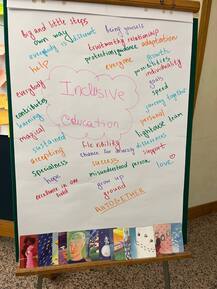 Dealing with special educational needs and disabilities in learning environments is not always simple. Teachers and educators have the opportunity to realize how important it is to develop good strategies of inclusion in their classrooms everyday, in order to provide all of their students with the same opportunities to learn and to make experiences at the same level. But there are some useful methods and strategies that can support teachers in their daily hard work to built the perfect inclusive classroom. The latter edition of the course “Special needs and inclusive education, the Italian experience of overcoming segregation” took place in Palermo from 09/10/2022 to 15/10/2022. The participants came from all across Europe, with Bettina Müßig from IGS Mainz-Bretzenheim in Germany, Jennie Arvidsson and Lina Mehlin Södervall from Rutsborgskolan in Sweden, Dace Vilemsone, Ligita Dambe, Liene Berga and Marta Stivrina from Preschool Vilnitis in Latvia, Violėta Deksnienė and Rasa Tūskaitė from Rokiskis nursery and kindergarten "Varpelis" in Lithuania, Caroline Zimmer, Joke Denayer and Tatiana Blauwaert from GO!Scholengroep UN!K in Belgium and Kerstin emisch, Christine Jücker and Tobias Lessmann from Overbergschule selm in Germany. 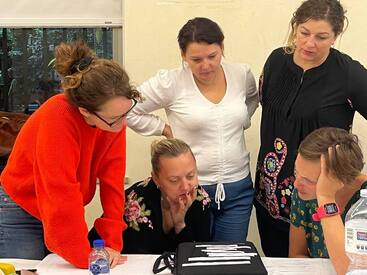 On the first day, the participants had the opportunity to reflect on the terminology linked to the inclusive matter, also sharing their own definitions and opinions about the main theme of inclusion, relating to the involvement of disabilities in their own educational environments and workplaces. The large number of participants in this group was an additional resource for our sharing moments, especially on our second day together, in which every participant both alone or with their colleagues showed us a presentation about the strategies adopted and developped in their schools in order to increase inclusion and to deal with disabilities. 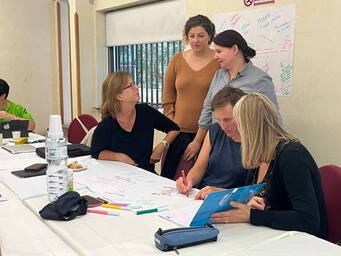 The group also had the opportunity to explore the features of inclusion methods in the “Italian model”, getting in a closer contact with the italian educational system and the role of Support Teachers in particular. But the main focus was the importance of personalized programs for education and the staff involved in the multidisciplinary operation group, that organizes inclusive methods for each classroom with special needs. Participants also explored the consequences of membership in the social field of the learning environments, analyzing how beliefs and behaviour related to stereotypes and prejudices affect relationships in the classroom, and especially how the language used by teachers influence the mindset of the pupils. In this respect, it’s important to develop awareness towards the right distinction between empathy and sympathy and the building of the right mindset focused on growth, to increase comprehension but in a healthy and constructive way. We also gave the right importance to the relationship with parents and tutors, focusing on communication, to better understand how these important figures, together with the teacher, influence the whole educational process. 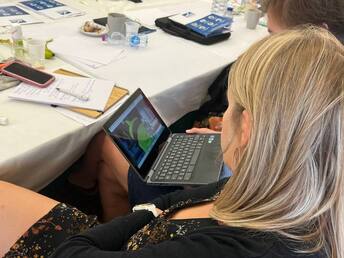 On our last day together we had another important moment of sharing, focused on practical strategies aiming to help pupils with special needs to enjoy classes as much as their classmates, overcoming all differences and difficulties linked to disabilities. Participants experienced the educational process differentiated by format and methods through the “Learning stations”, which also involve the multi-sensory approach in learning. Our group was varied and full of different characteristics, which enriched our experience together and gave us awareness of how inclusion is experienced in various parts of Europe, also according to individual contexts.
Discover more about this course here As different parts of the same coin, teaching and coaching are the main branches of education. Realizing this means understanding how the learning process is not only about transfer and give general knowledge about specific topics in different subjects. It is a complex mechanism, based on the co-operation of individual and collective work and also on emotive techniques that allow teachers to build a communicative channel with their students, in order to create a safe place in which they can develop their skills. This was the central topic of the latter edition of the course “Emotional intelligence and coaching inside the school and educational context” that took place in Palermo from 03/10/2022 to 07/10/2022. The participants came from all across Europe, with Dóra Farkas from Szegedi Nemzetközi Általános Iskola and Péterné Csanádi and Ilona KoczkánéRedele from Egri Balassi Bálint Általános Iskola in Hungary, Anabel Sampériz Corvinos from CPEPA Miguel Henrández in Spain, Diliyana Lefterova, Katalina Gogova and Viyara Peneva from Secondary Technical School "D-r Nikola Vassiliadi" in Bulgaria, Kathrin Grau from Q-Prints & Service gGmbH in Germany. First of all, the participants discovered the importance of emotional intelligence linked to the role of teachers. But this important skill cannot be developed without the right amount of self-awareness and without the help of useful tools to recognize our own emotions and deal with them. Two are the main basis of this process: communication and the right mindset, that has to increase the possibilities of growth inside the relationship with the pupils. In this context, the whole group learnt how to face their daily tasks in classroom using healthy techniques to establish assertive communication and how to exercise leadership without being aggressive. In the following days, the participants dug deep into the field of conflict management, a useful tool to deal not only with students but also with the educational environment that involves colleagues and families. Conflict should not always be seen as a negative experience: growth and positive outcomes can be results of the healthiers ways to develop a dialogue, with the aim to avoid misunderstanding and tensions in the workplace.
This joyful and pushing week represented for the whole group a colourful path into the facets of the learning process, enriched by the different cultural contexts and the individual experiences that each participant wanted to share with us all.
Discover more about this course in: https://www.erasmustrainingcourses.com/coaching.html To engage students, it’s a complex challenge: using innovative methods can be a significant resource to motivate them and to enhance their learning. Thanks to different kinds of studies and research, today there are many tools available that can be used in the school environment: project-based learning, non-formal education, outdoor education, and ICT are some of the many opportunities that can be integrated with traditional teaching methods. The new edition of the course “Innovative teaching methods for teachers, school and adult education staff” took place in Bologna from 10/10/2022 to 14/10/2022. The participants came from all across Europe, with Kristina Mikaliūnienė, Asta Buškuvienė, Rūta Bernikienė from Radviliskis V. Kudirka Progymnasium in Lithuania, Dusica Antic, Ivana Milosavljevic from First technical school in Serbia, Māra Kreicberga and Tatjana Vinokurova from Private Secondary school KLASIKA in Latvia, Marcin Witowski from Zespół Szkół Ekonomicznych im. W. Stysia w Świdnicy in Poland, Elif Özcan from Gebkim MTAL in Turkey, Natalia Cobo Dabán from OÜ Hispaania Maja in Estonia. At first, Project Based Learning allows students to delve into content in a more direct and meaningful way, starting from a topic question and trying to investigate real world issues. Analysing the principles of PBL, the participants of the course had the opportunity to discover how teamwork, collaboration, and creativity can help students to discover the way to deal with real problems, learning strategically and searching for the answers from the start.
On the other side, visual strategies and teambuilding games showed the power of Non-Formal Education. In fact, starting from the activities, we explored the Kolb’s experiential learning cycle and we learned how it allows it to pass from reflection to conceptualization and application, giving the student an active role in the learning process. Thanks to an ICT tool, the teachers had the opportunity to participate in a special type of treasure hunt, discover Bologna and deepen the power of Outdoor Education in a very funny way. Some of the advantages of Outdoor Education that emerged during the debriefing are, on the one hand, the increase in motivation and creativity; on the other, the improvement of the psychophysical well-being thanks to the contact with nature and the consequent reduction of stress. Moreover, Mara and Tatjana provided us with a wonderful presentation of the outdoor activities that they use back at their school. We had a chance to deepen into different types of activities. Finally, we explored innovative teaching methods with ICT. We practised several tools in class, finding out new ways to engage students, assess and display a lesson. This course helped participants to understand how to work with a more innovative approach in their classes. By Friday, team spirit was so high that it was difficult to say goodbye. However, our group was very eager to go back and start applying all the many ideas that emerged during the course. Another great week of inspiration was over, but only to be continued back in their countries. Discover more about this course here The inclusion of students with special needs in the classroom is vital. Every child has the right to quality education and learning. Inclusive education is when all students, regardless of any challenges they may have, are placed in age-appropriate general education classes that are in their own neighborhood schools to receive high quality instruction, interventions, and supports that enable them to meet success in the core curriculum (Bui, Quirk, Almazan, & Valenti, 2010; Alquraini & Gut, 2012). The objective of inclusive education is to respond to the learning needs of all children, whatever their needs are (physical, cognitive, academic, social, emotional...). Diversifying teaching methods can accommodate students with different backgrounds, such as diverse abilities, diverse prior learning experiences, diverse cultural background, diverse learning styles, diverse levels and ways to motivation... The course took place in Bologna, from 09/10/2022 to 15/10/2022. Participants came from all across Europe, with Custódia, Fátima and María do Céu from Escola secundária de Cacilhas-Tejo; Antti from Jokivarren Koulu; Joanna and Jolanta from Społeczny Zespół Szkolno-Przedszkolny; Indré and Agné from Lietuvos aklųjų ir silpnaregių ugdymo centras; Sandrine and Raphaël from L Rabelais; Nubar, Nalan and Dovile from KD International School of Vilnius; Panagiota from St. Lukes Parents' Association for Adults with Intellectual Disabilities and Ilona and Sandra from Barboleta Ltd. Our participants could learn in 7 days of course, the Italian inclusive education model, and even the laws about the specials needs, the principles, benefits and key values of inclusive education, improve the learning of students with special needs and they have even been able to visit an Italian school that working with young people with physical and learning disabilities and debate on teaching methods, tools and approaches. They have shared and exchange their own experiences and best practices about their work with learning disabilities. Also, for sure, they could enjoy the cultural activities in Bologna, visit Florence, appreciate the beauty of Italy and its gastronomy! Discover more about this course here The importance of Outdoor education is increasing nowadays, especially after living the pandemic of COVID-19. This type of education helps students appreciate more their environment and to develop their personal, social and emotional skills. Outdoor learning can take place in many settings and the topics approached can vary: in this way students can learn more about school subjects but also about environmental sustainability. Teachers learnt how to design, plan and deliver inspirational outdoor education activities and shared experiences and reflections about it. Thanks to this course, students from all over Europe will be able to enjoy games, group challenges and a variety of exercises in nature helping to create a positive harmony between them and the natural environment. This week we welcomed two groups of teachers: Simona, Vilma, Snieguole, Vida and Gailute, all of them from the Lithuanian school Alytsu kindergarten-preschoool “Putinelis” and Patricia, Maika, Gustavo and Beatriz, four Spanish teachers from the school IES Praia de Barraña. The course took place in Bologna, from 02/10/2022 to 08/10/2022. During the course they did many activities. On the first day, they had the chance to share their fears, their contributions and their expectations from the course, although some of them came without fears! Participants also learnt about the benefits of Outdoor Education, both from a physical and a cognitive point of view. We went to a local park, where the participants could experience adventure education in the nature. This morning was mainly dedicated to games played in groups that promoted inclusion and cooperation, so that participants will be able to put in practice these activities with their students in their country. We also talked and discussed about the 10 principles of Kurt Hahn and his approach to experiential learning and outdoor education. However, participants had to find all these information during a treasure hunt around the training facilities. As you can see, it is possible to learn through non formal education without going too far from the classroom! Our participants also had the chance to learn about Outdoor learning in urban settings. Through a digital tool they had to complete some missions and challenges in the center of Bologna and fight to get a higher score! Last but not least, they could enjoy the cultural activities in Italy! They experienced, the Renaissance in Florence, the mosaics of Ravenna, the San Michele’s castle in Ferrara and above all the beauty of Bologna. Without a doubt, they have put in very good practice the activities outdoor! Discover more about this course here
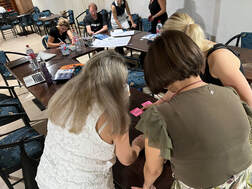 It’s necessary to provide teachers and education staff with strategies, skills and knowledge to effectively manage a classroom, so the main objective of the course has been to develop effective classroom management strategies for personal, social and relational development for instance self-confidence, team building, leadership... They could learn and practice reflective tools, analyze and improve current practices to develop a student-centered teaching approach and get an overview of the trending innovative teaching methods, their benefits for the student learning process and attitude and other activities. These were the main topics discussed in the new edition of the course “Effective Classroom Management Strategies for teachers and education staff” that took place in Tenerife from 02/10/2022 to 08/10/2022. The participants came from all across Europe, with Ulla Anttila from the school Oulunkylänyhteiskoulu in Finland; Steffen Lang and MareikeGerstenecker from the school Gymnasium Balingen in Germany and EmanuelaAndrietti, Alessandra talamonti, FilomenaCantoroand LuiginaCastoranifrom the school Liceostatalesaffo in Italy. There are three important concepts to get a supportive climate for the students in the classroom that are the engagement: create a more conducive learning environment for themselves and other teachers and students; the environment: students can be who they really are through the sincere expression of their ideas, feelings, concerns, desires and goals, both personal and professional, and finally, the safety: to protect the welfare of pupils and teachers.  First, they learnt about Social Emotional Learning that is the process by which children and adults effectively acquire and apply the knowledge, attitudes and skills necessary to understand and manage emotions, set and achieve positive goals, feel and show empathy for the others.This skill is essential to create a more tolerant and supportive atmosphere. Group dynamics were also discussed. This concept is important because it allows each student to get to know each other thoroughly, control their emotions and understand those of others. Communication in the classroom is essential to reinforce the learning process and obtain the necessary information from students in order to influence the achievement of their training objectives.This will allow the teacher to identify what actions can be taken to help them overcome their obstacles and obtain good academic results. 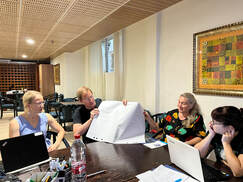 Then, the topic of “Flipped Classroom” was presented. This concept means that the lesson becomes homework, while class time is used for collaborative activities, experiences, debates and workshops. In this context, the teacher does not assume the role of protagonist actor, but rather becomes a sort of facilitator, the director of the didactic action. In the end, we talked about conflict management. Participants were able to observe how conflicts can also be beneficial if handled correctly. More info on this course here
|
Welcome to the ELA Blog. Here you will find articles and photos of our courses and have a look at the topics addressed during the week in Bologna, Palermo and Tenerife. You will also have the chance to take a peek at our projects and check out what we have been up to.
Archives
July 2024
Categories |
-
Course catalogue
- 2023-2024 course catalogue
- Soft Skills >
- ICT and New Technologies >
- Inclusion and Diversity >
-
Innovative Teaching Methods
>
- Innovative teaching methods discovery
- Non-formal education teaching methods
- Dual education and work-based learning
- Teaching leadership and entrepreneurship
- Project based learning
- Game based learning and gamification
- Green skills
- Outdoor education
- Outdoor education trekking edition
- Promoting creativity and critical thinking
- Languages and EU projects >
- Preschool >
- Erasmus Plus KA1
- What we do
- About us
- Locations
- Blog
- Contact us
 English
English български
български Čeština
Čeština Español
Español Français
Français ελληνικά
ελληνικά Italiano
Italiano Polski
Polski Português
Português Română
Română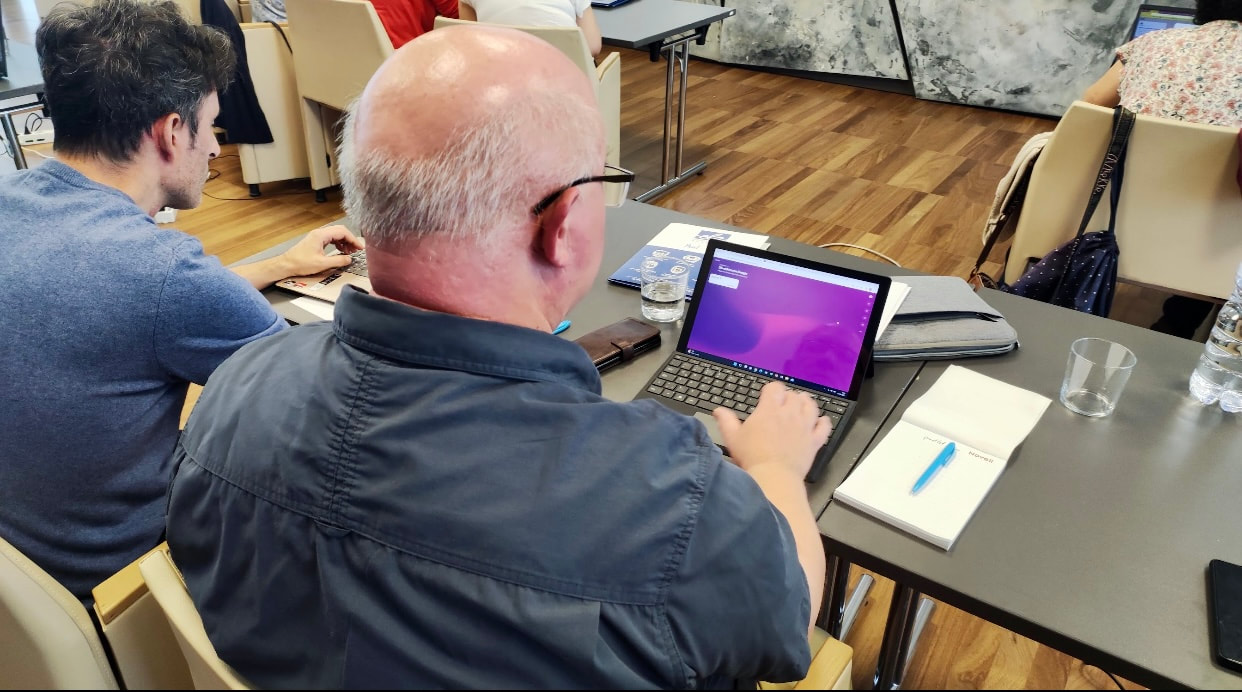
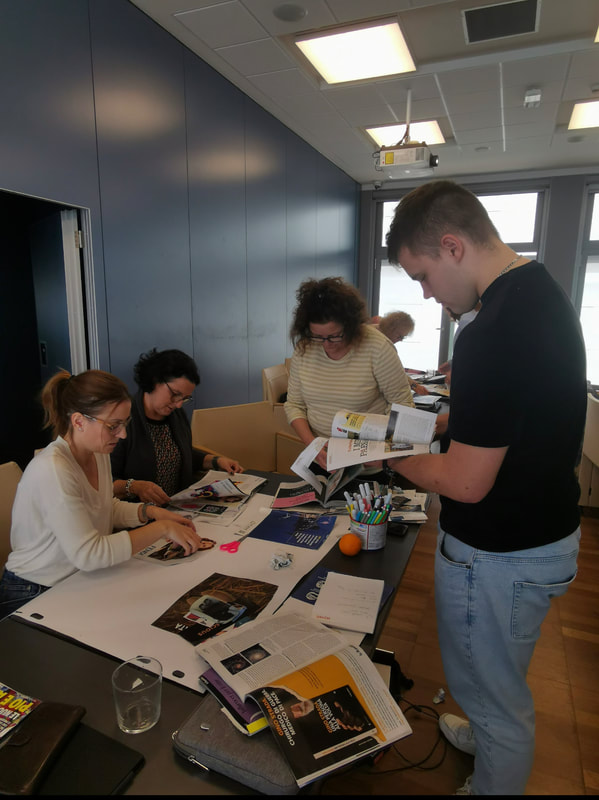
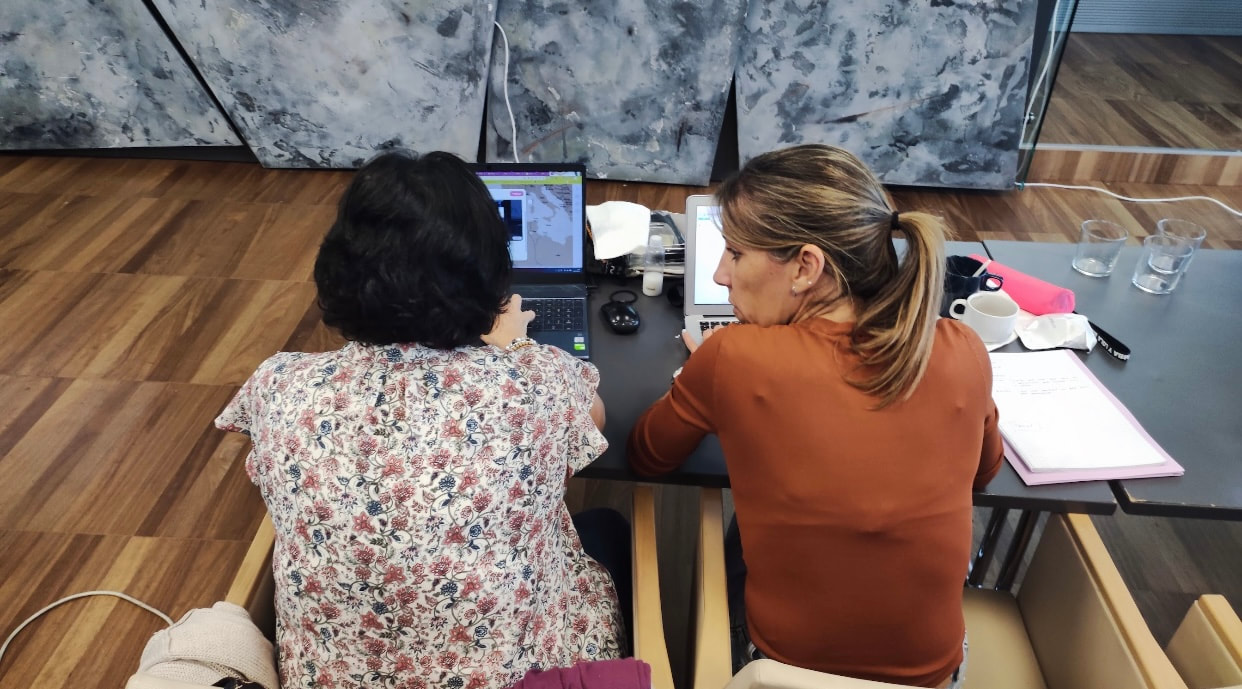
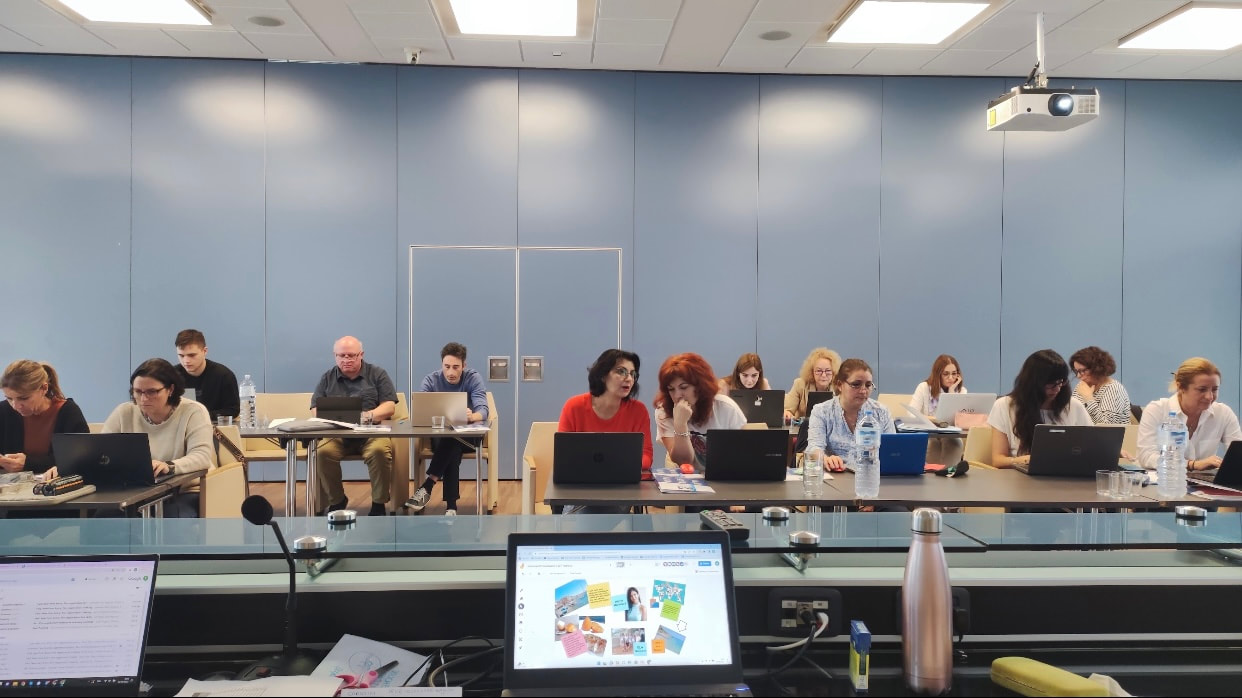
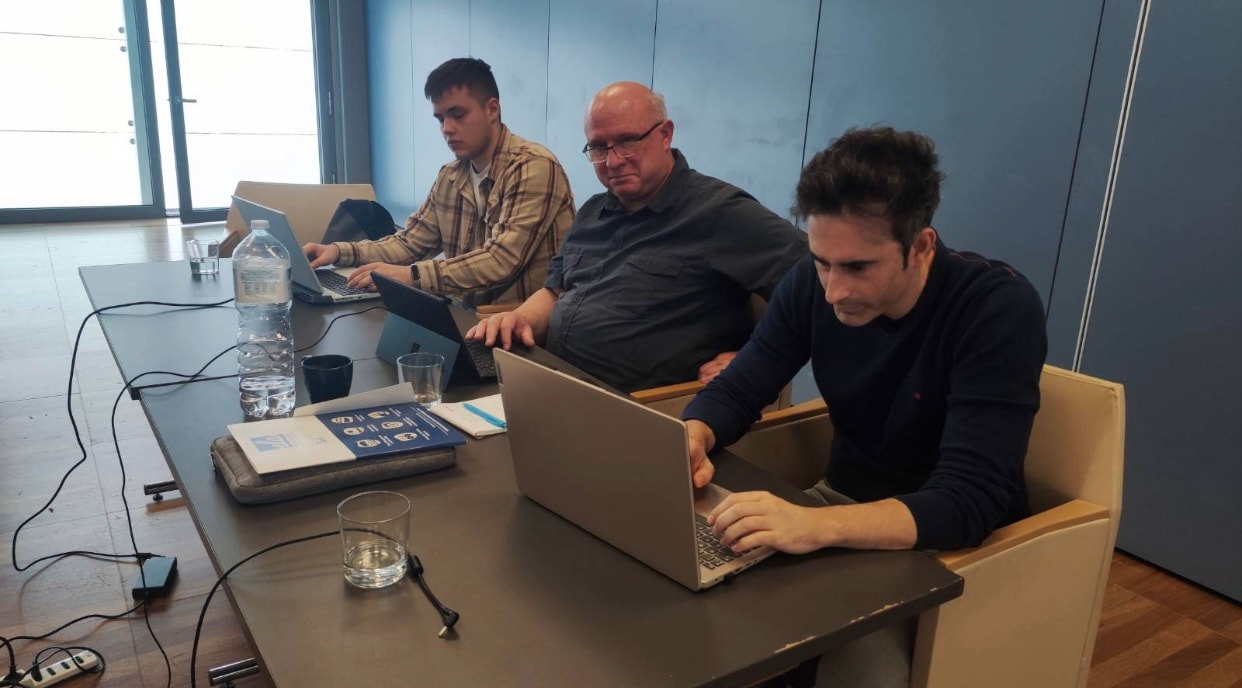
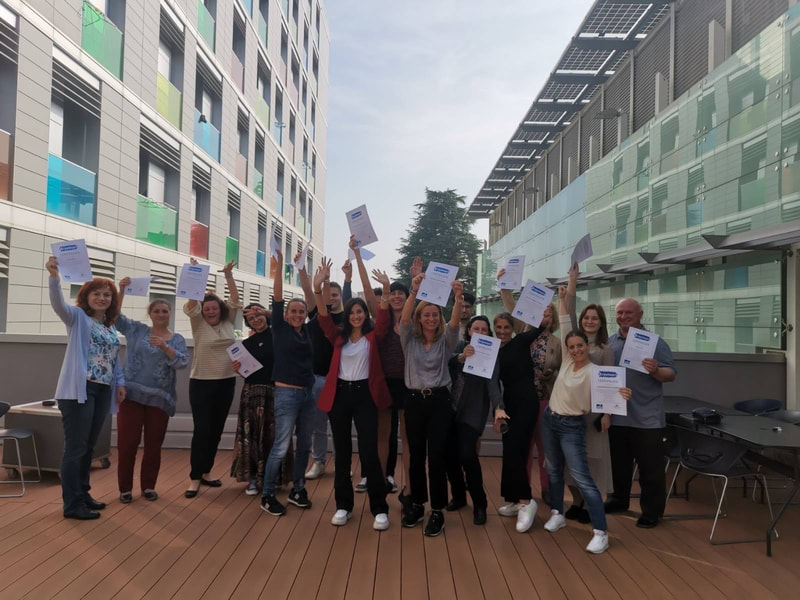
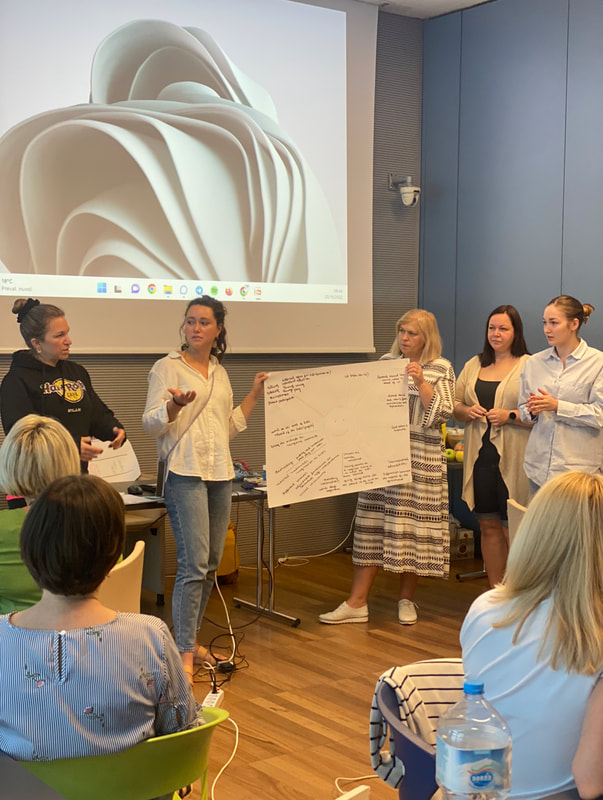
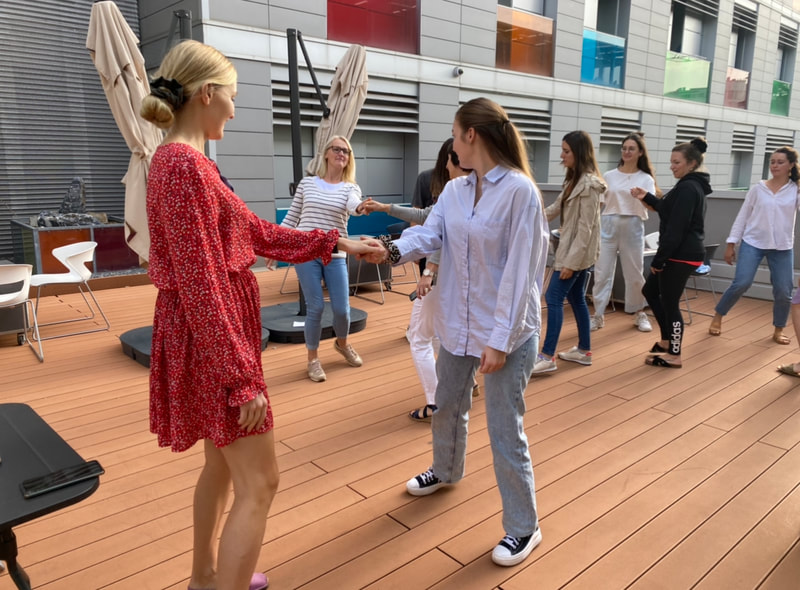
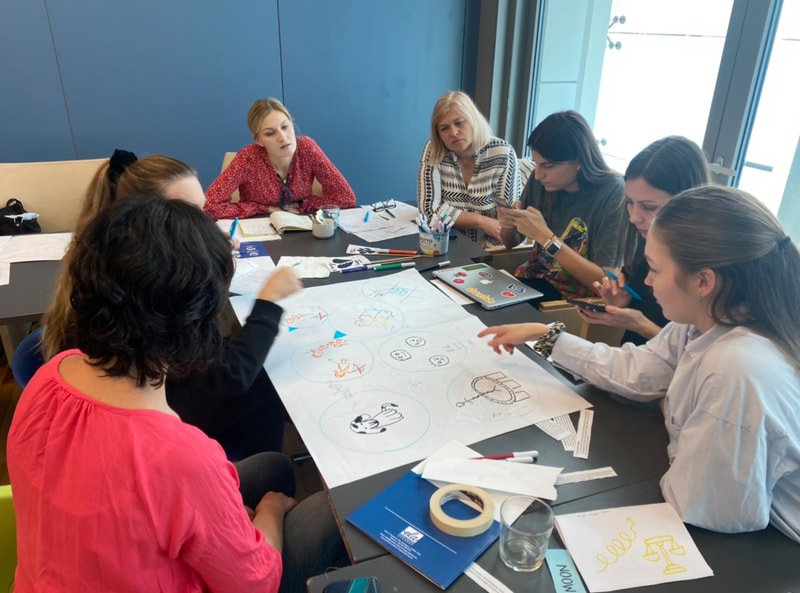
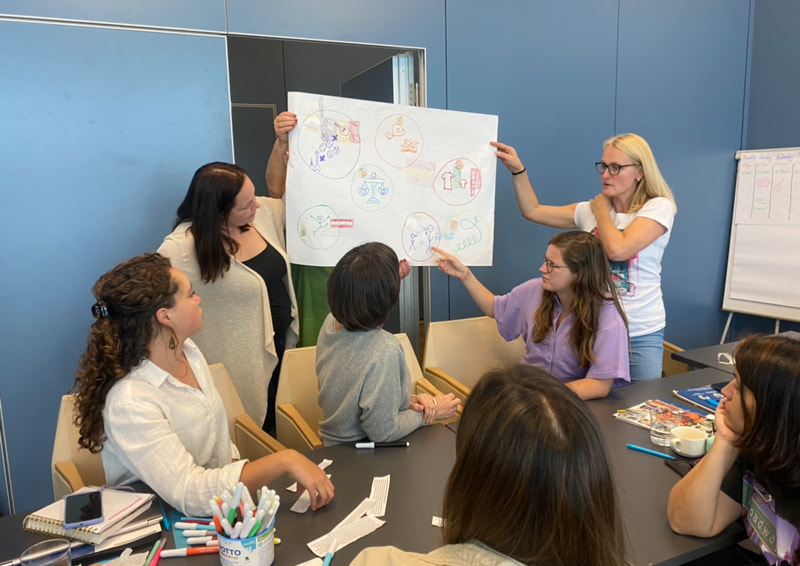
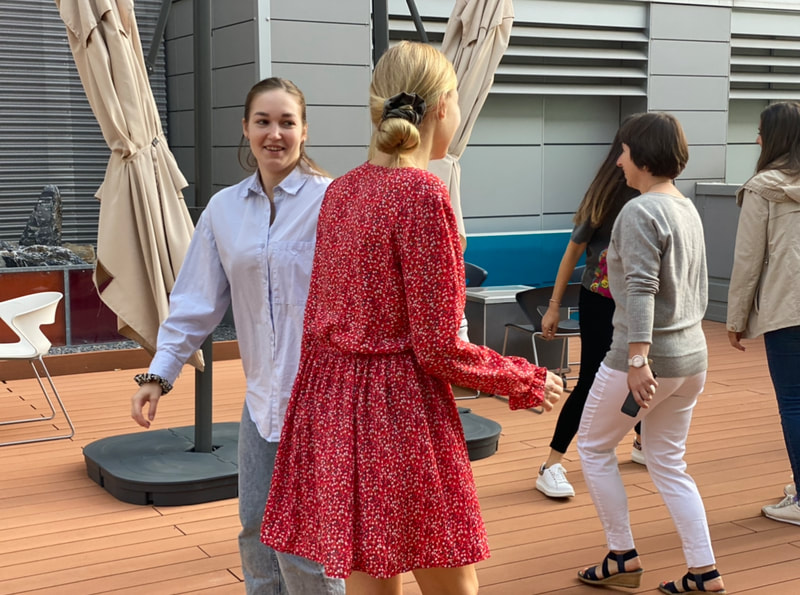
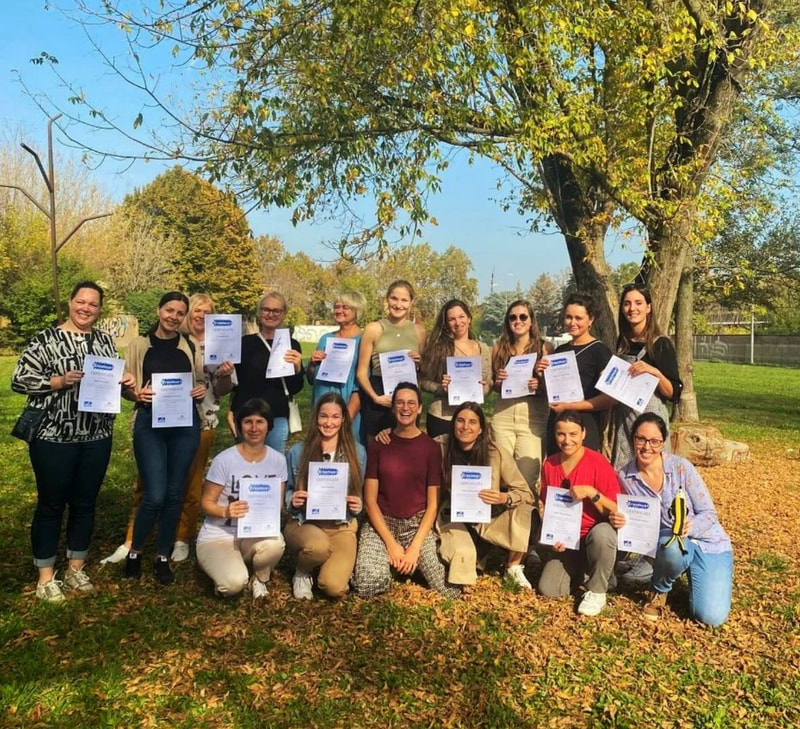
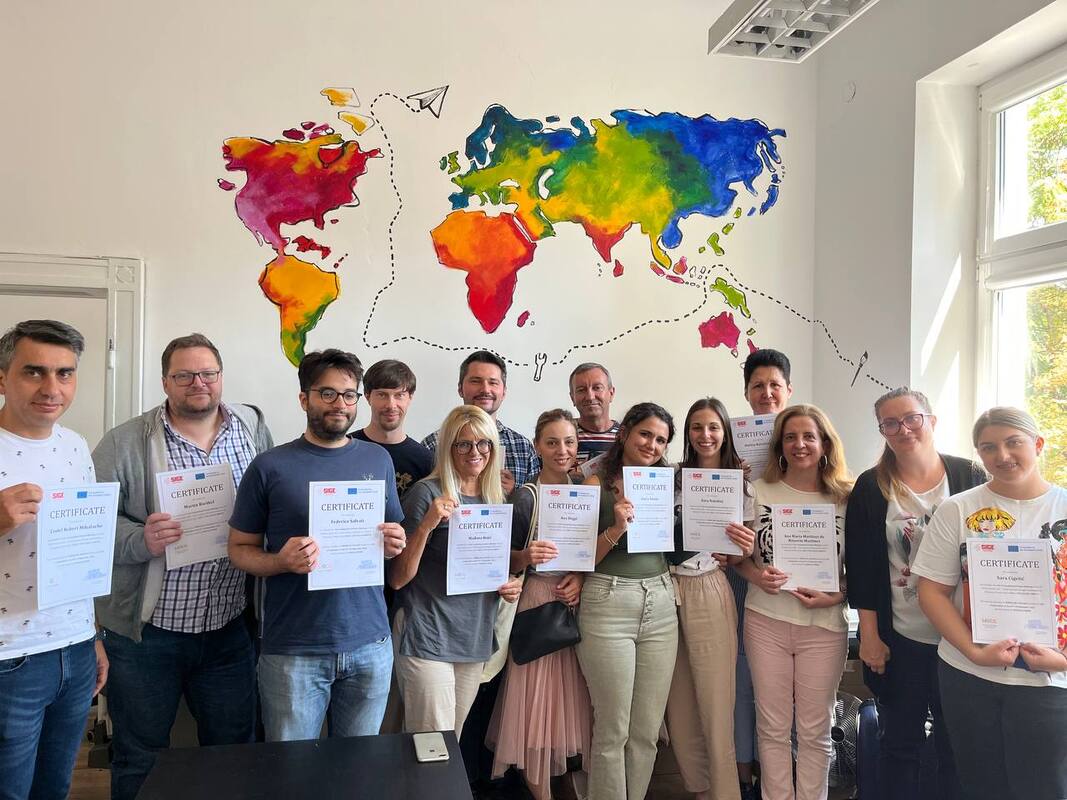
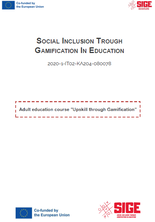
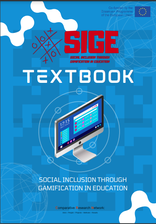
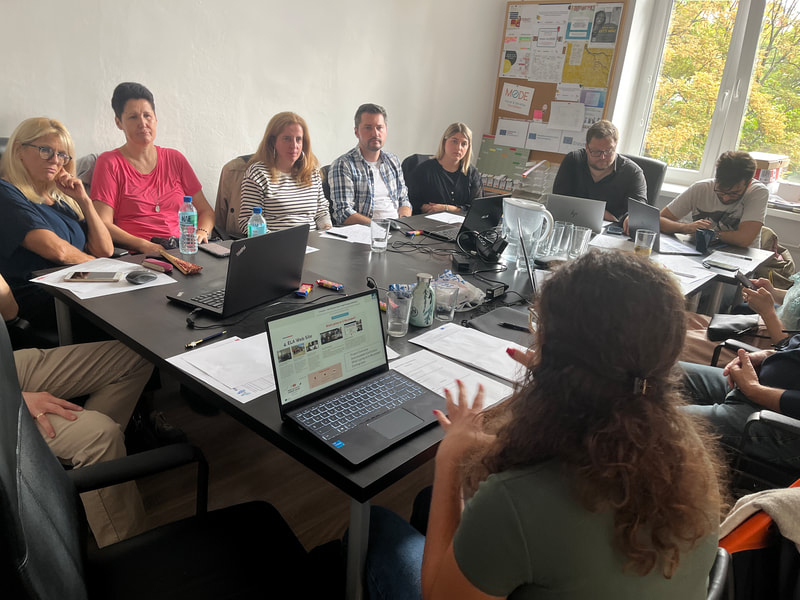
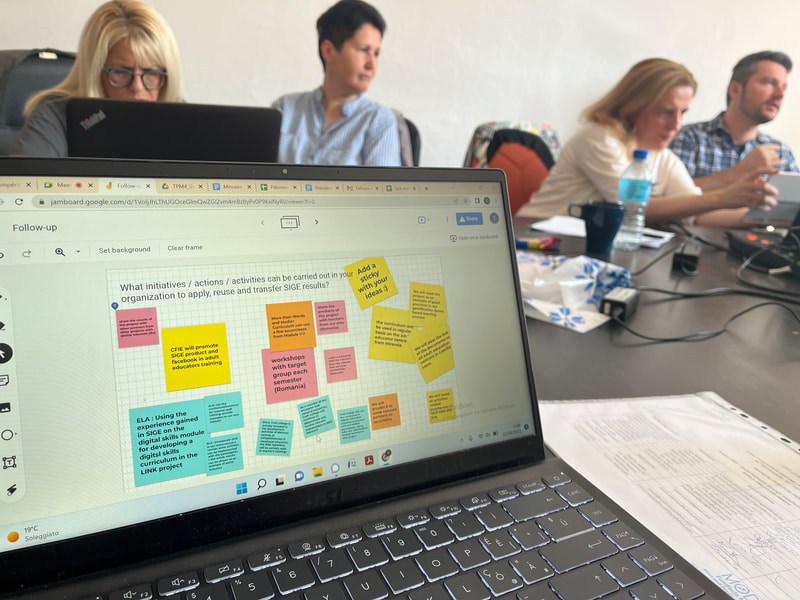
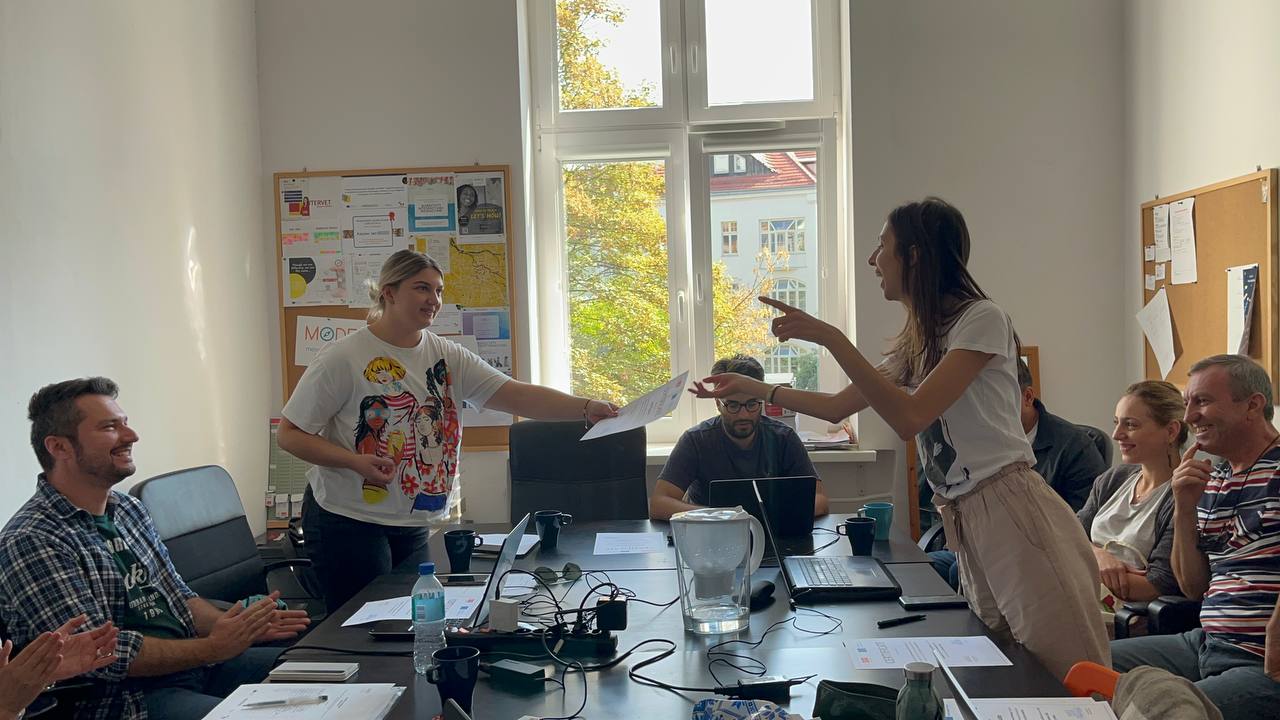
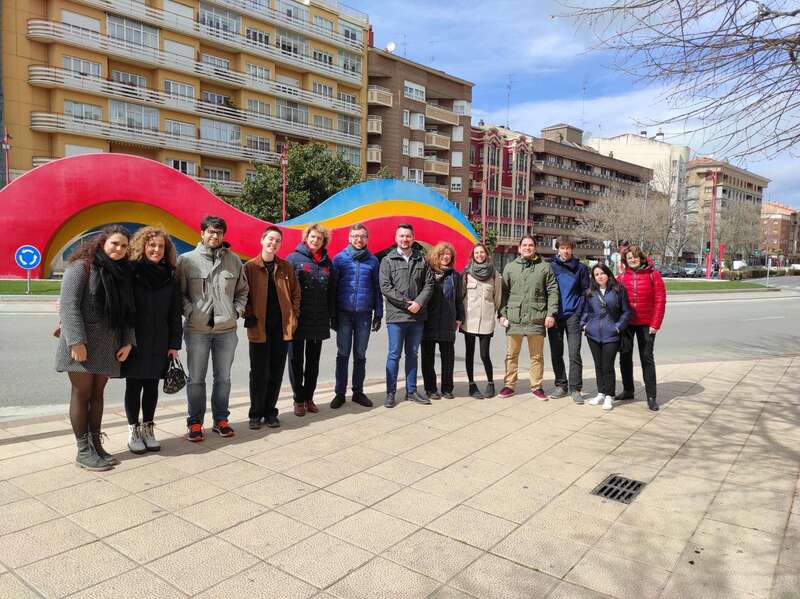
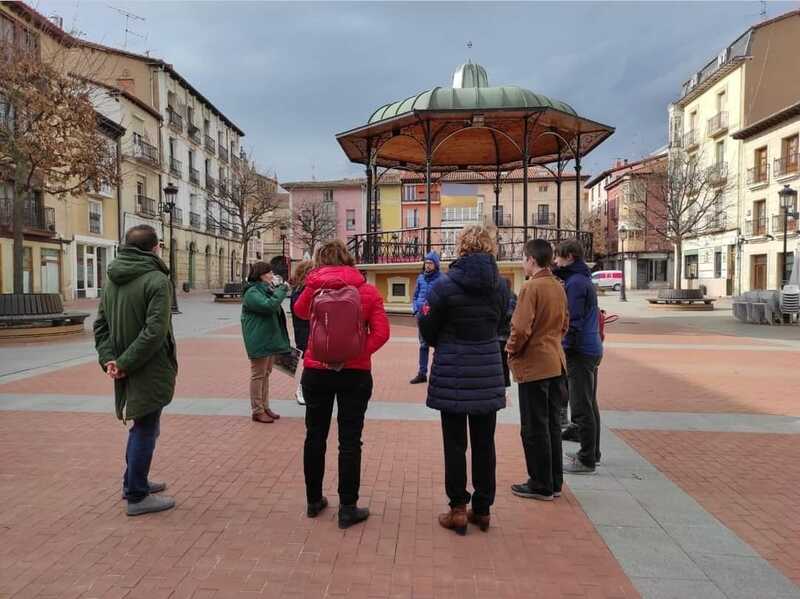
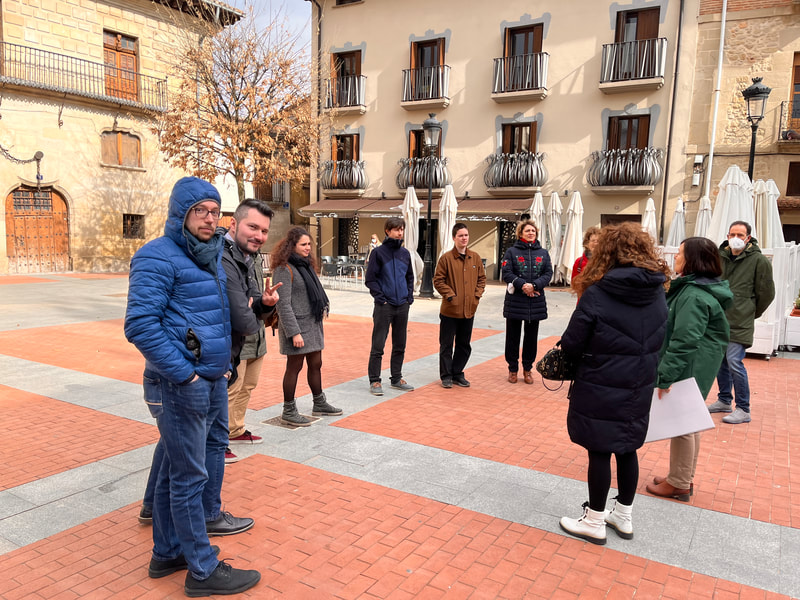
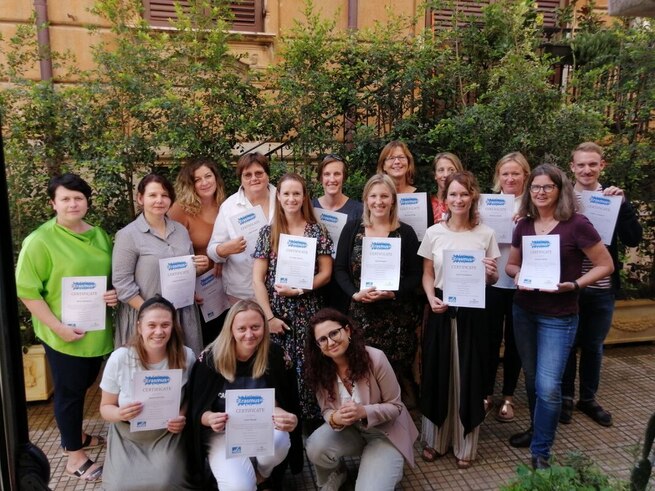
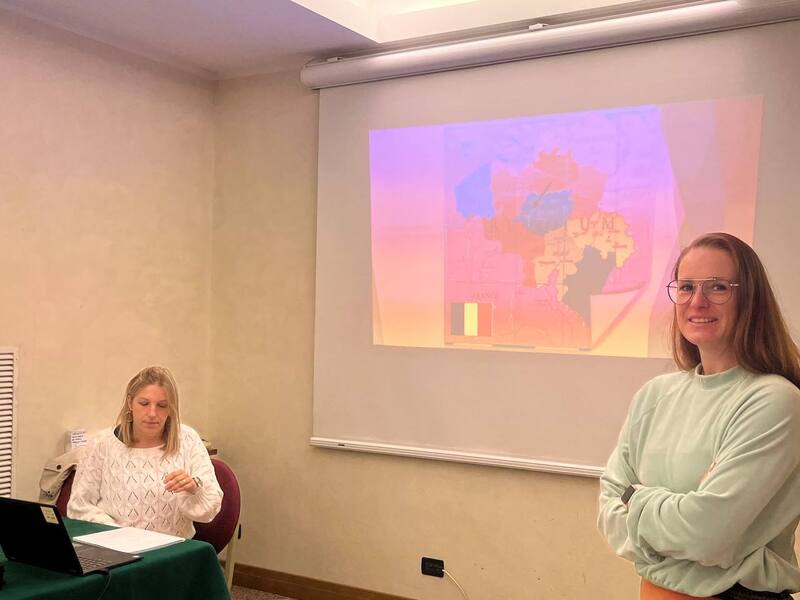
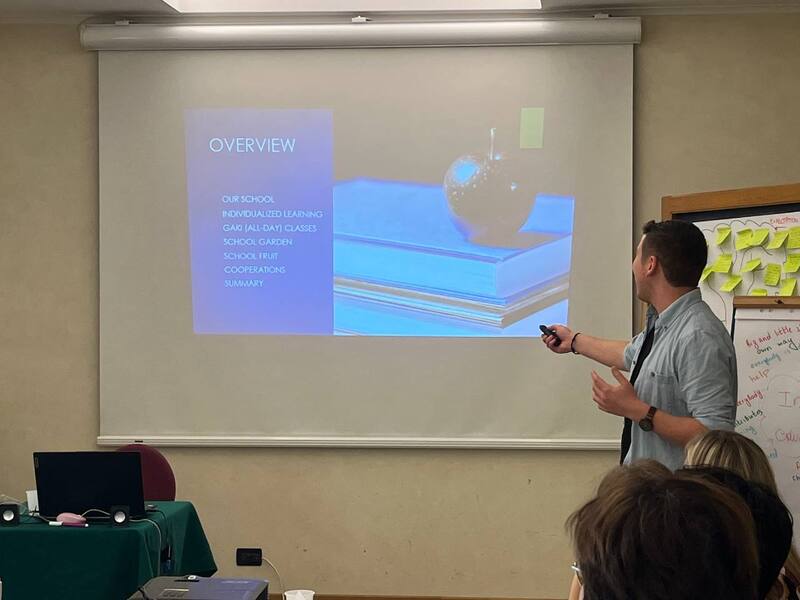
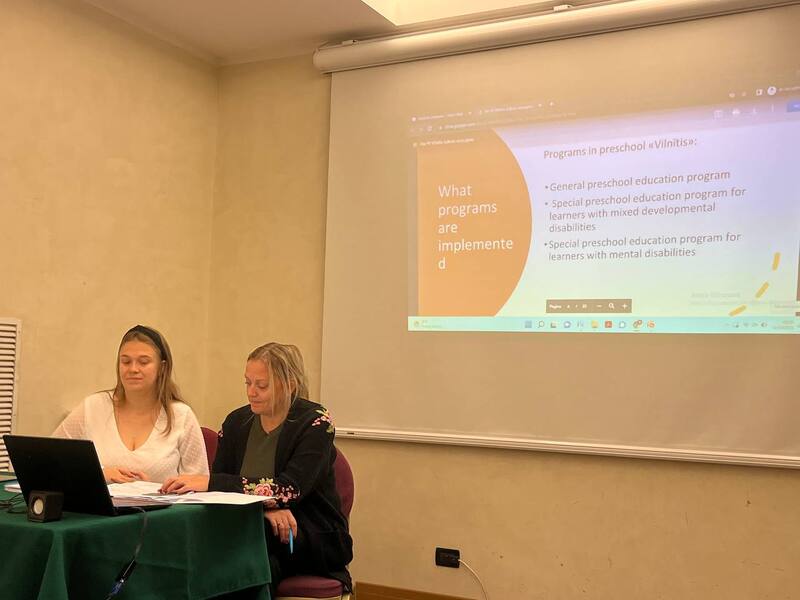
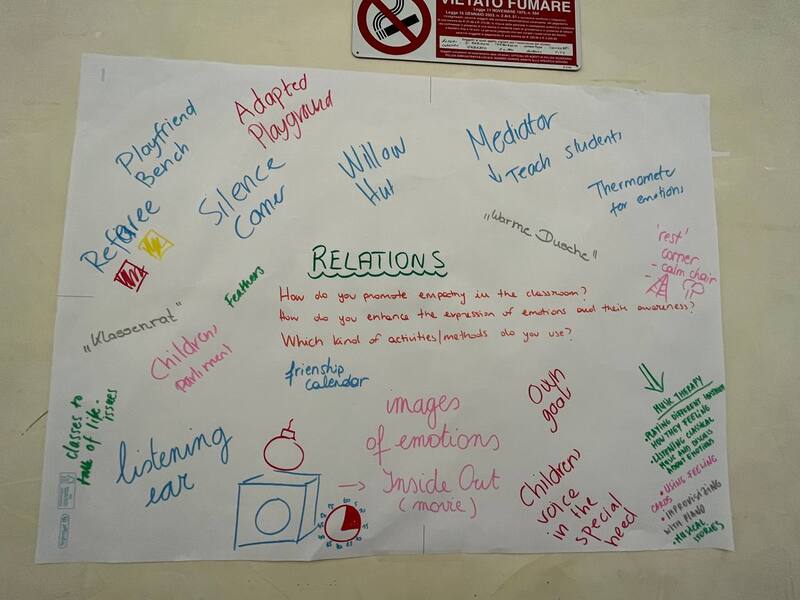
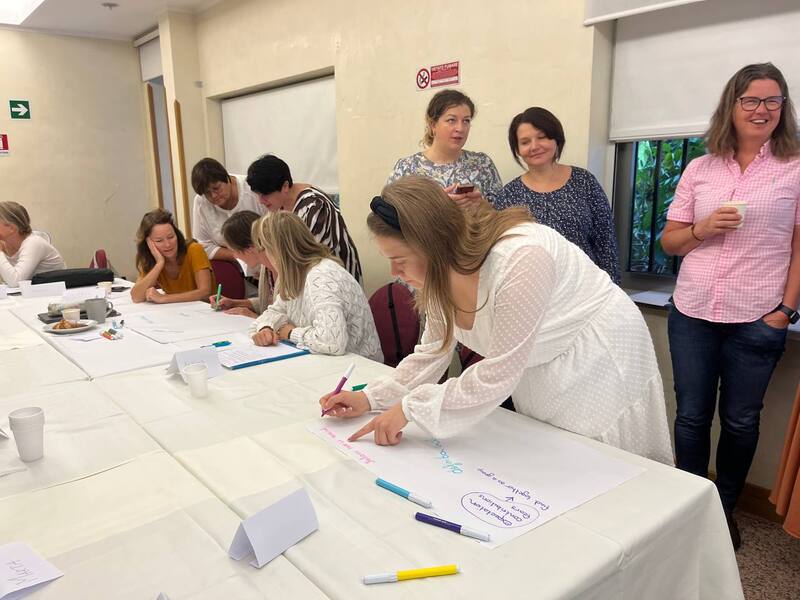
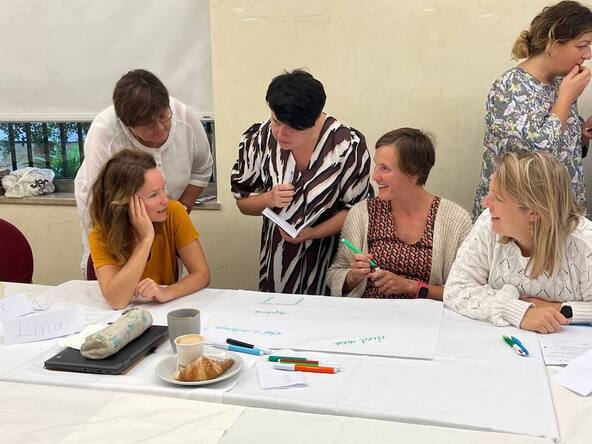
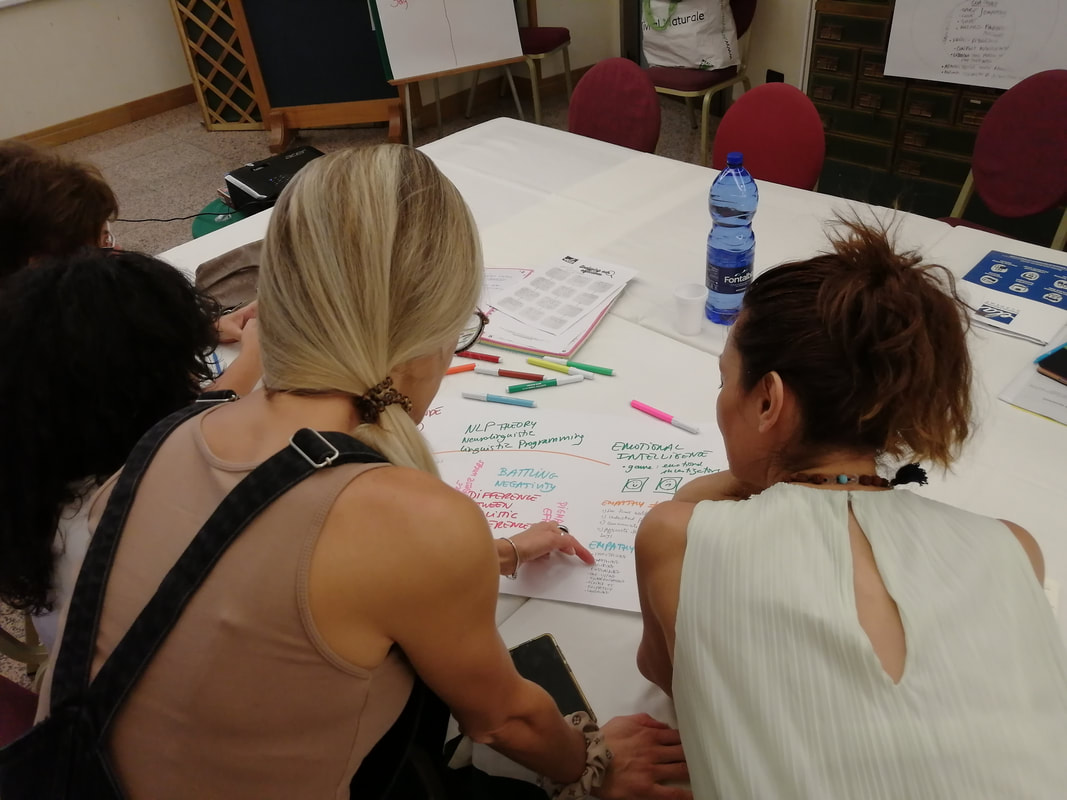
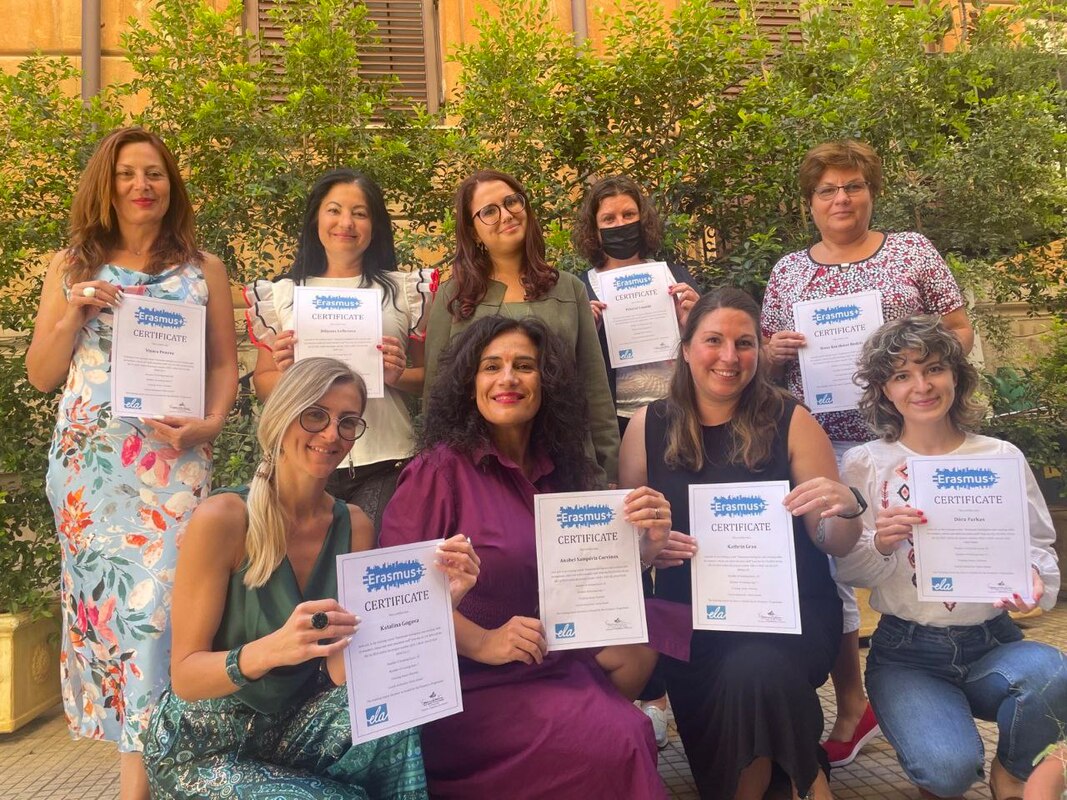
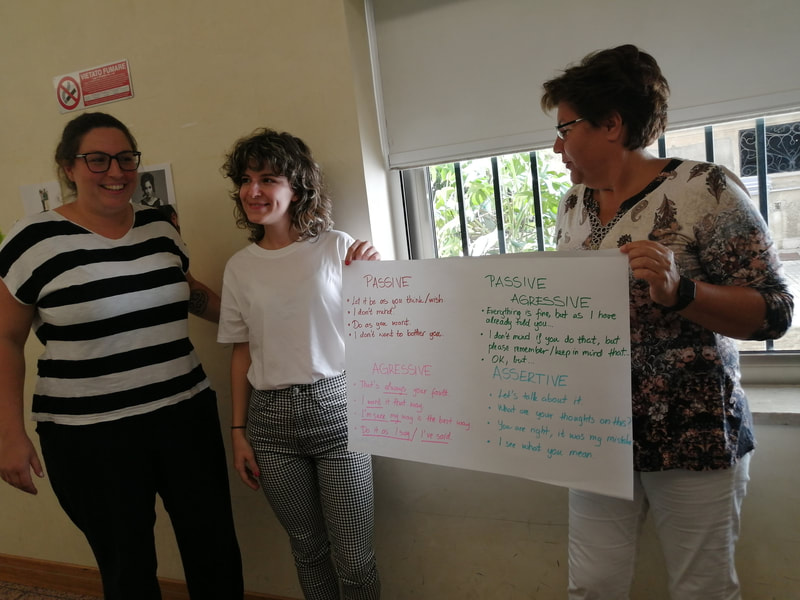
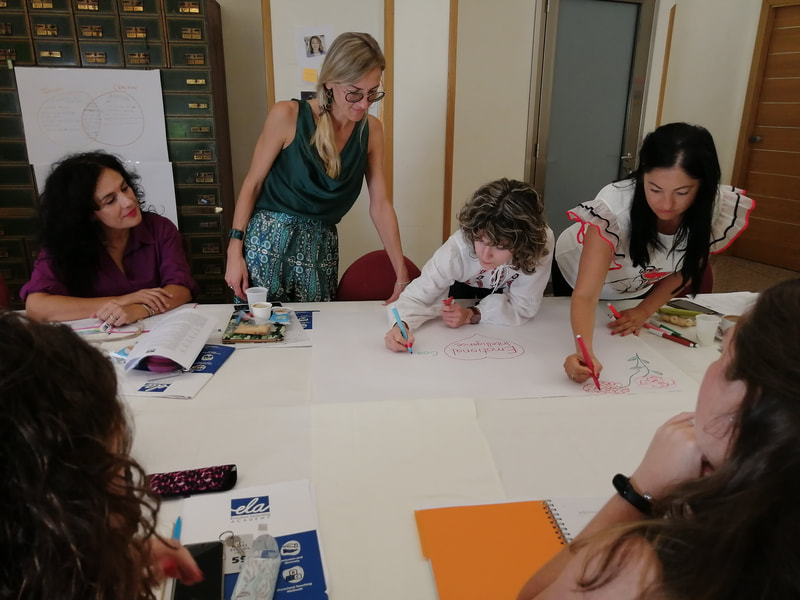
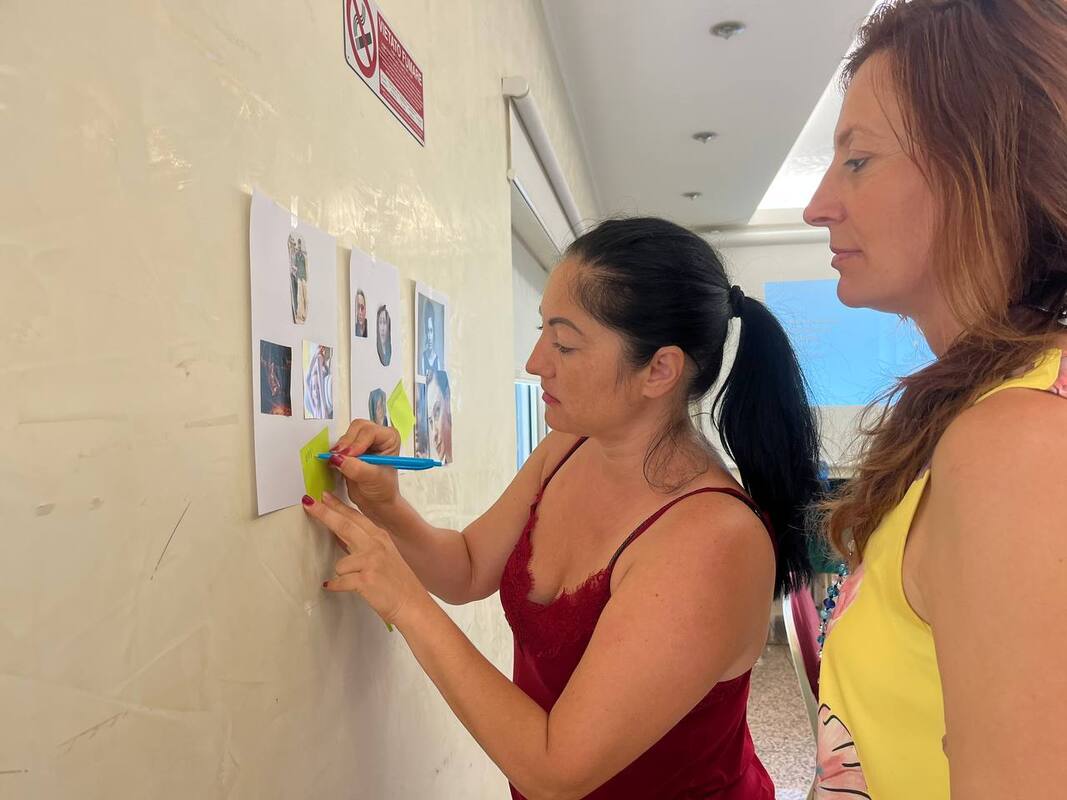
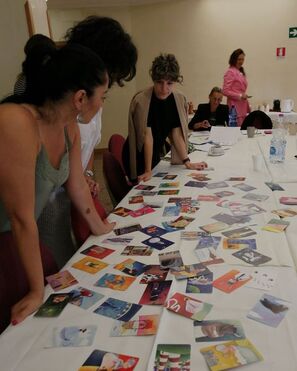
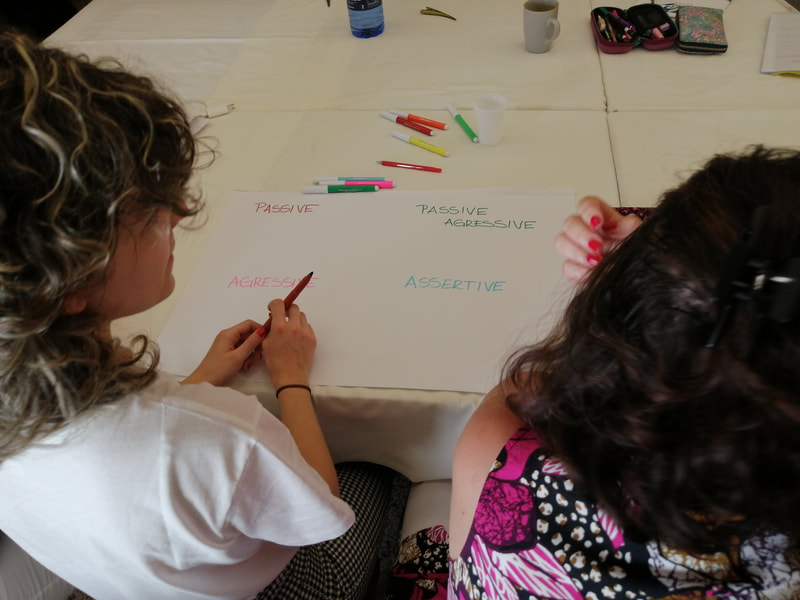
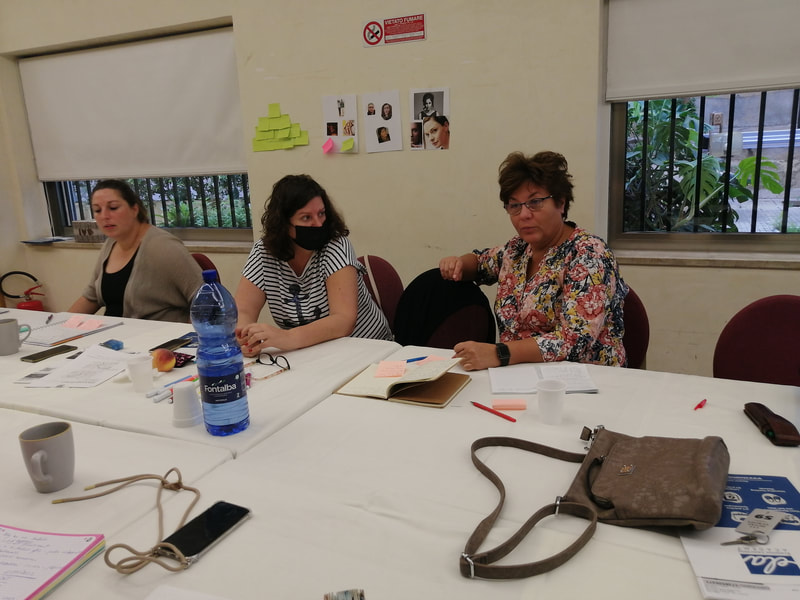
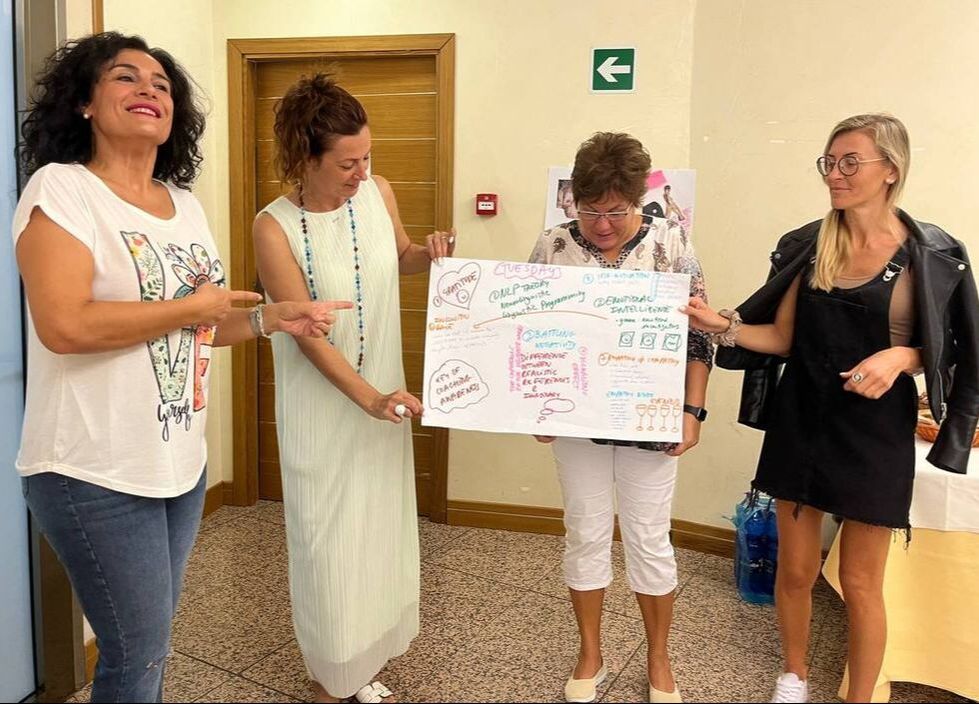
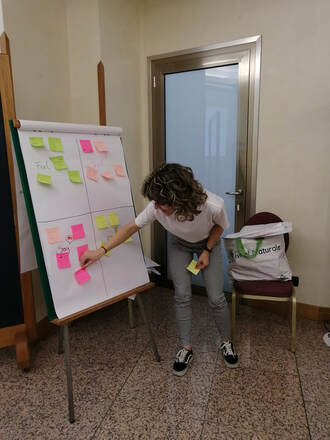
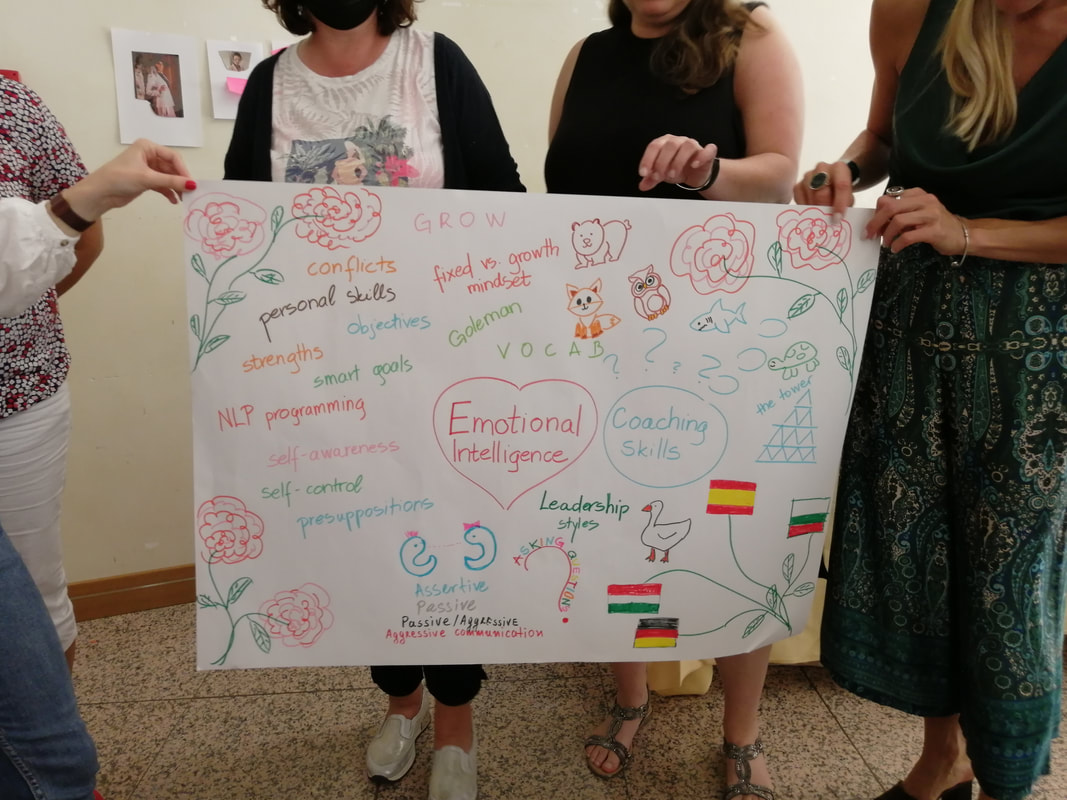
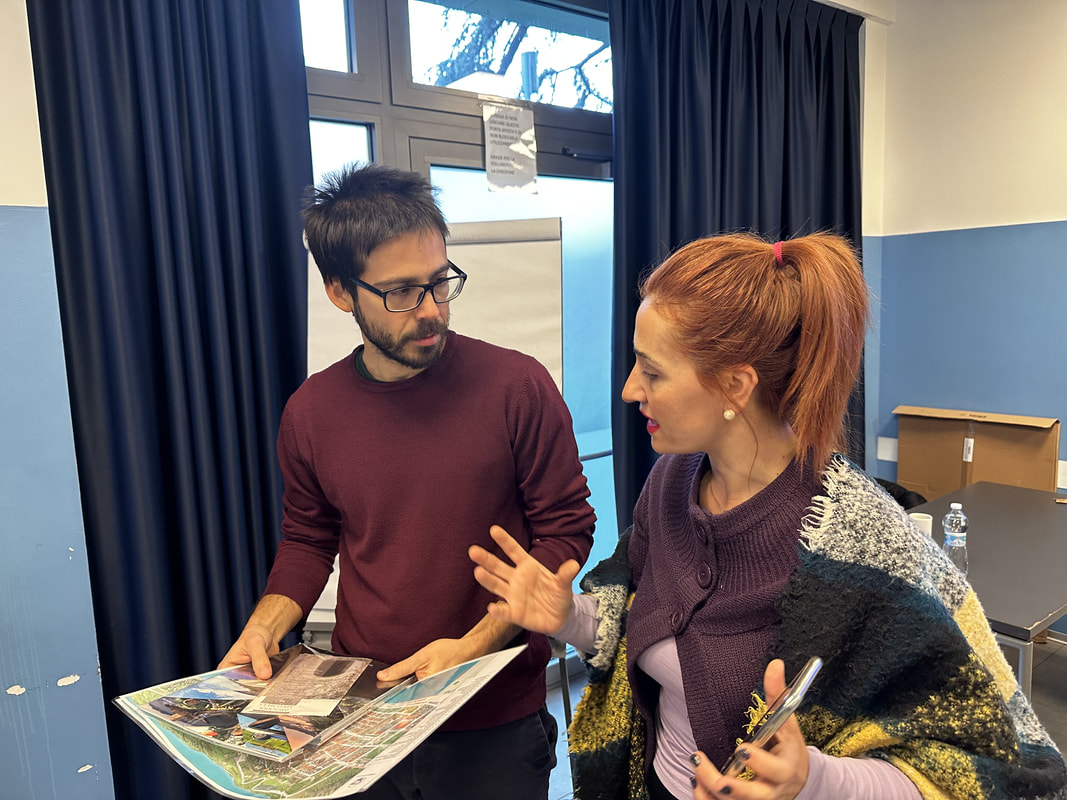
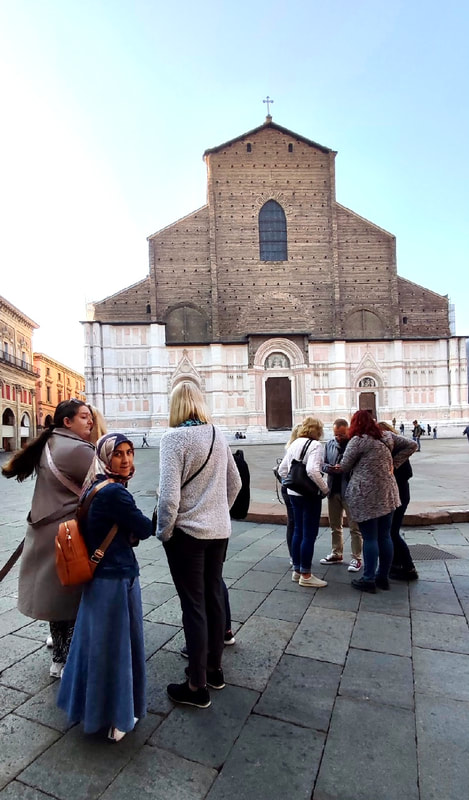
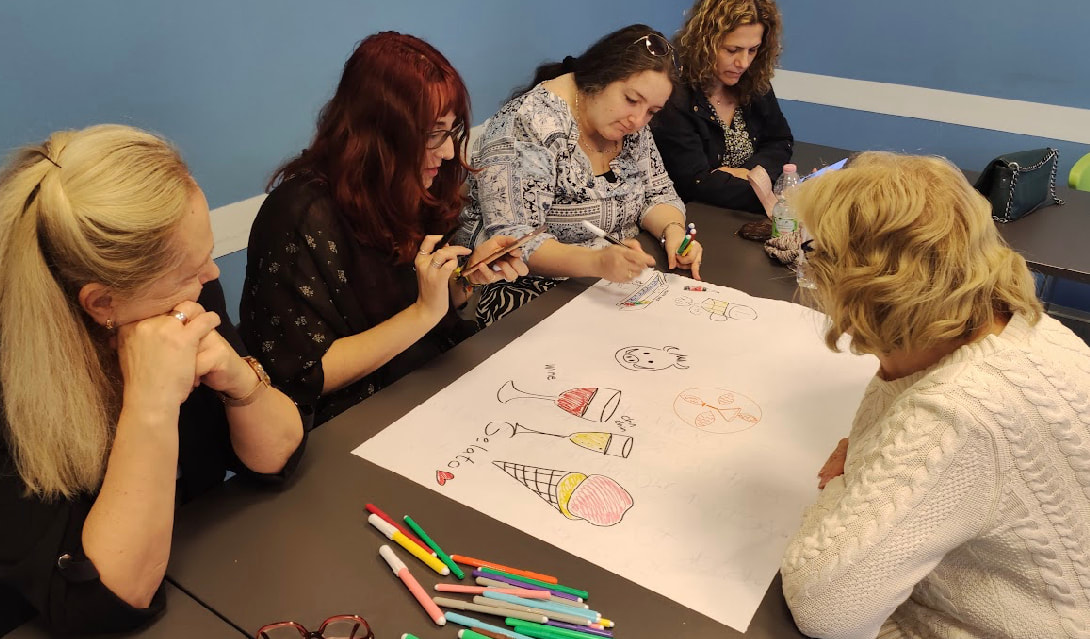
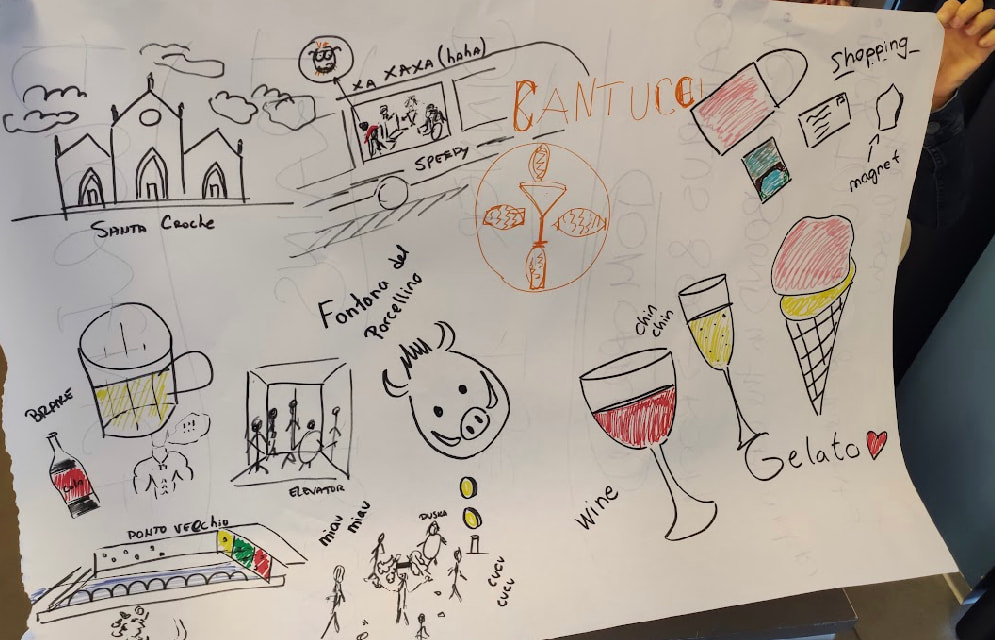
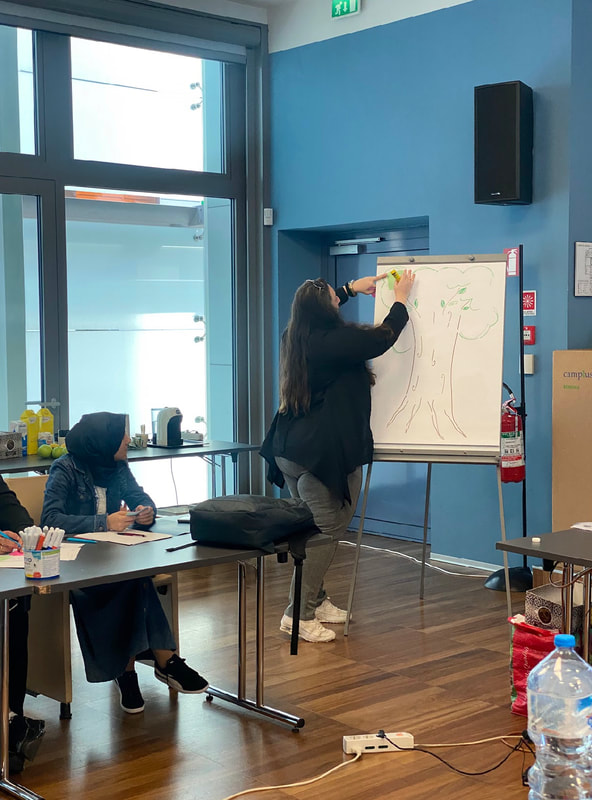
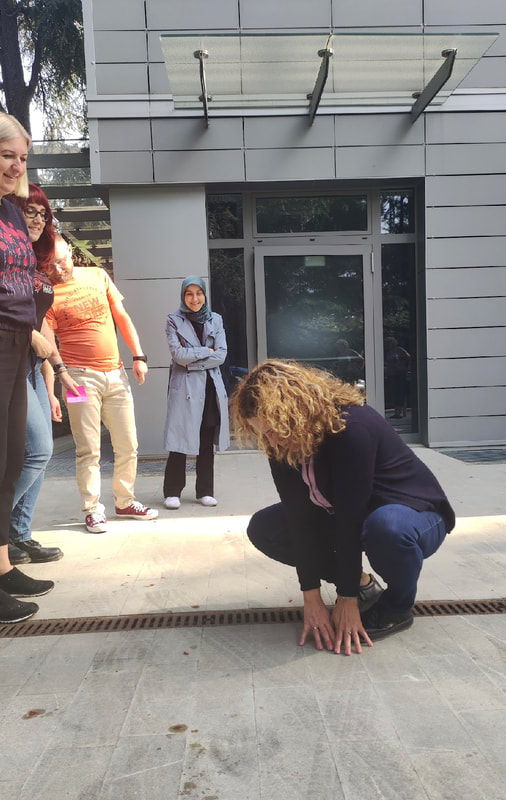
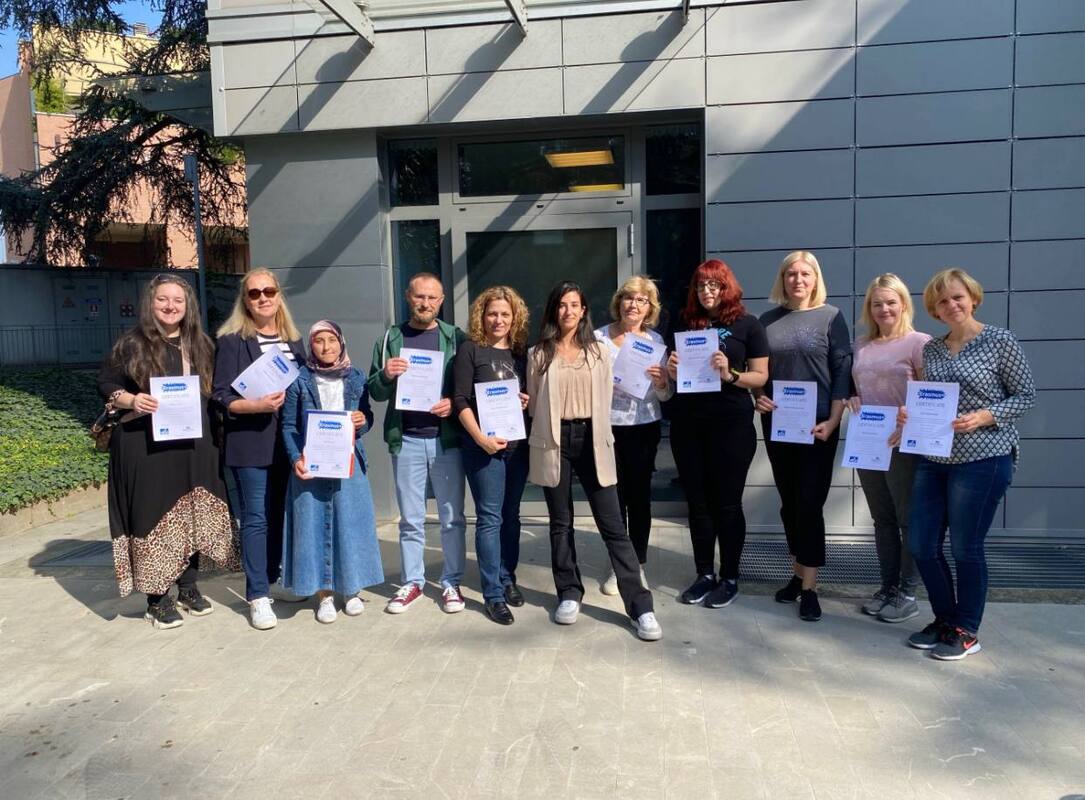
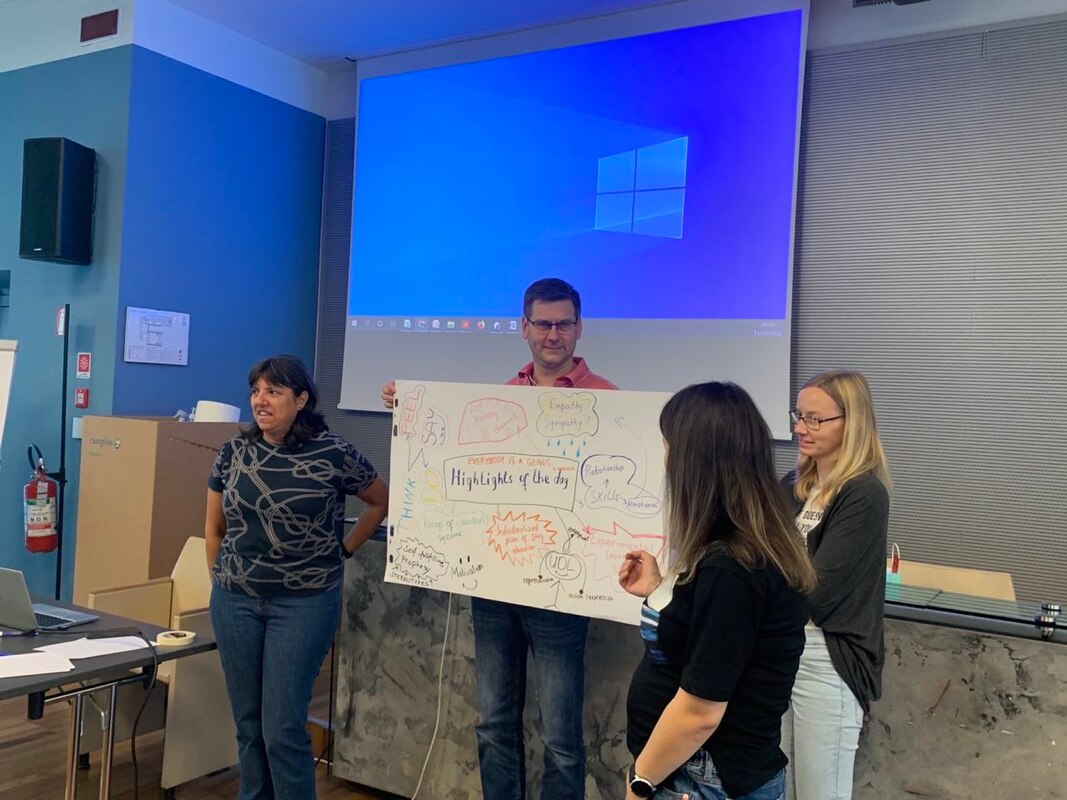
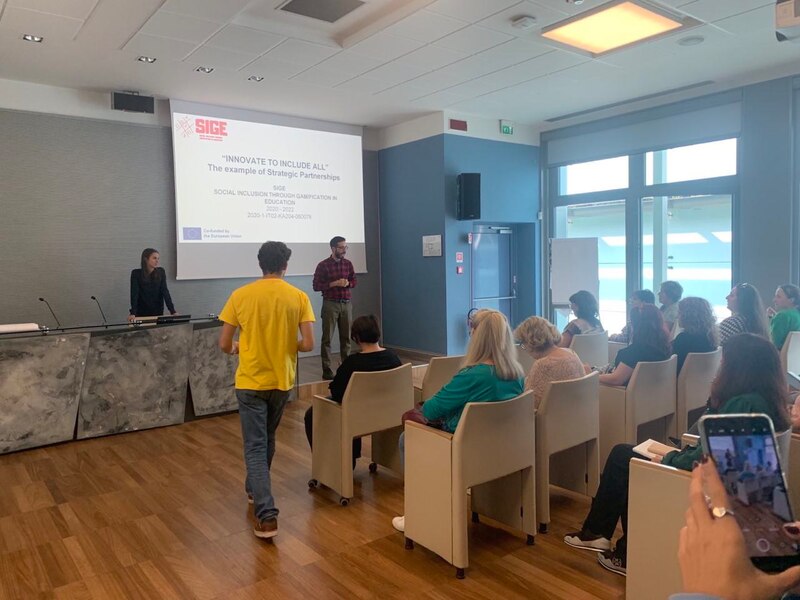
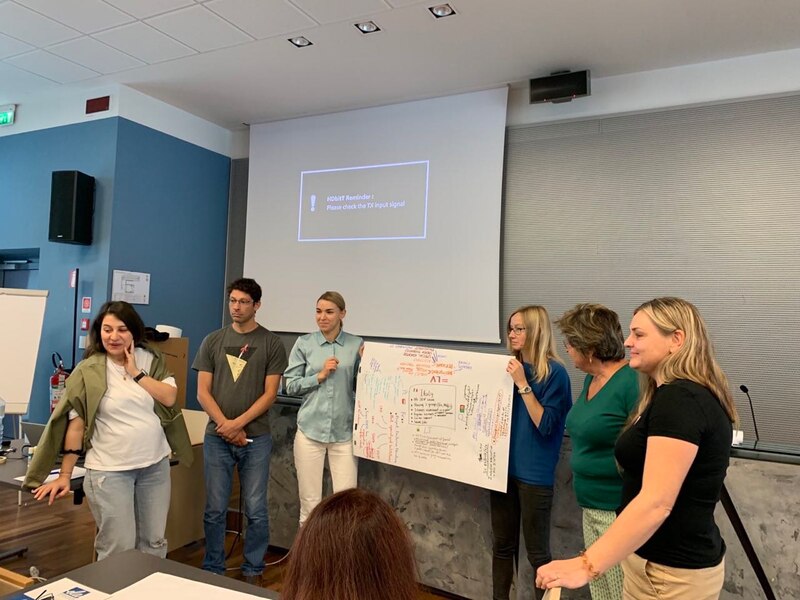
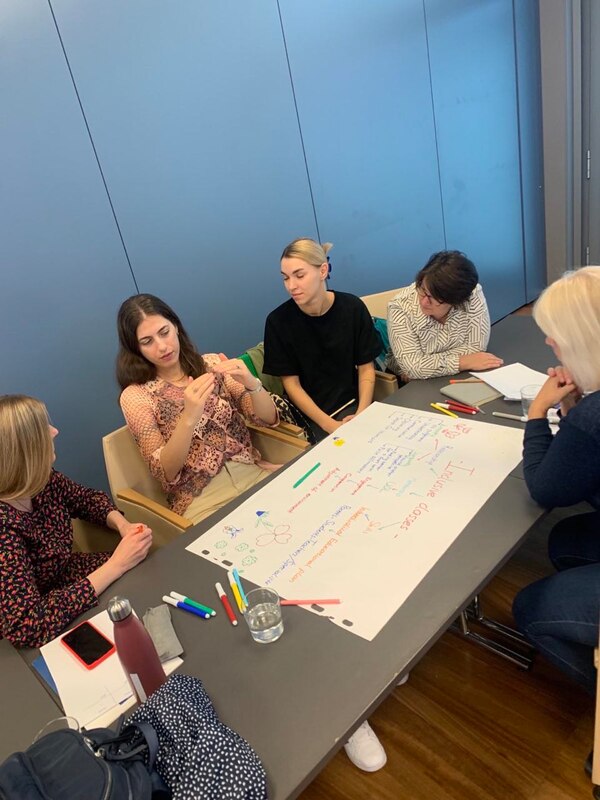
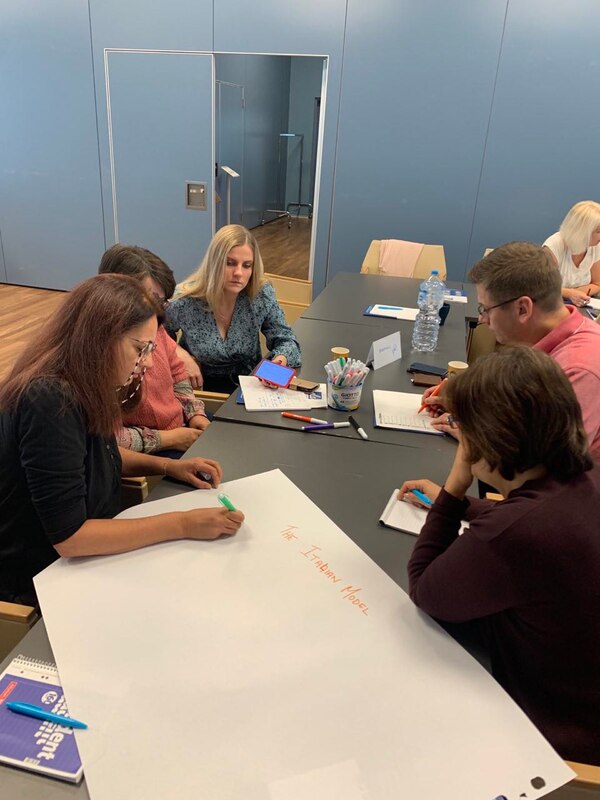
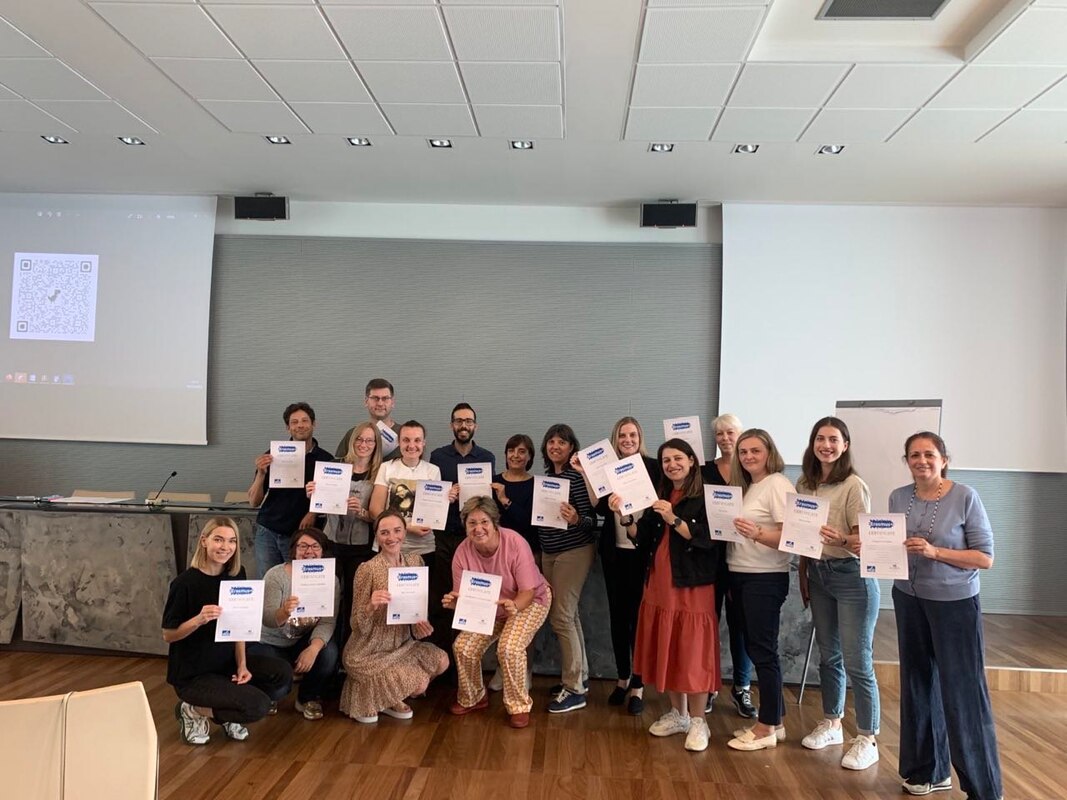
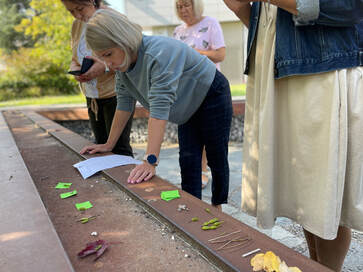
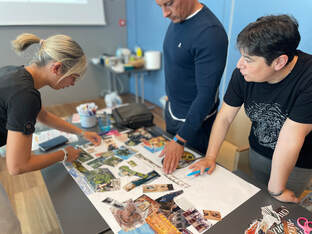
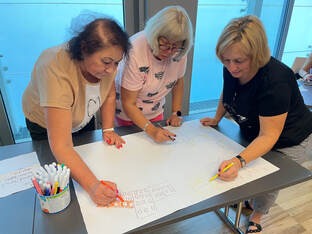
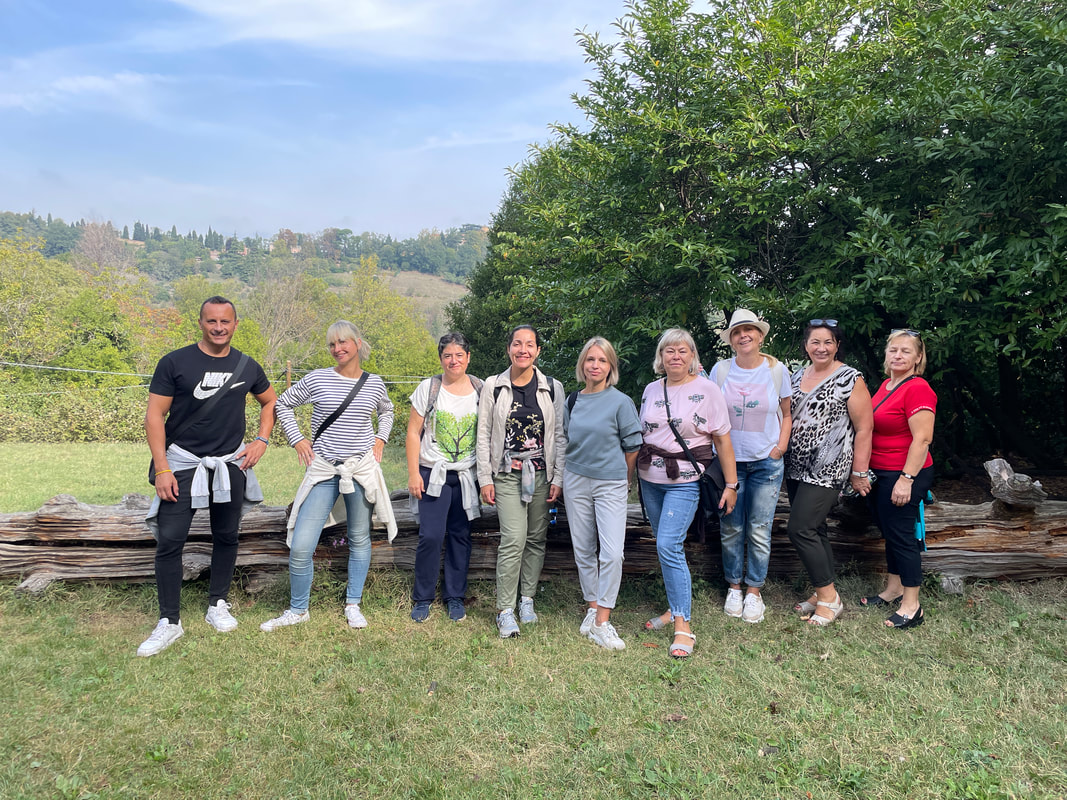
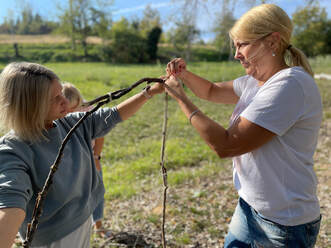
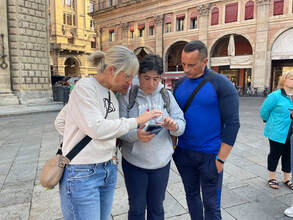
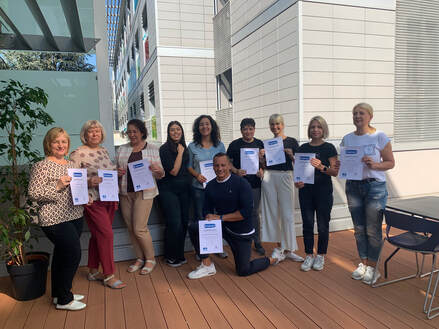
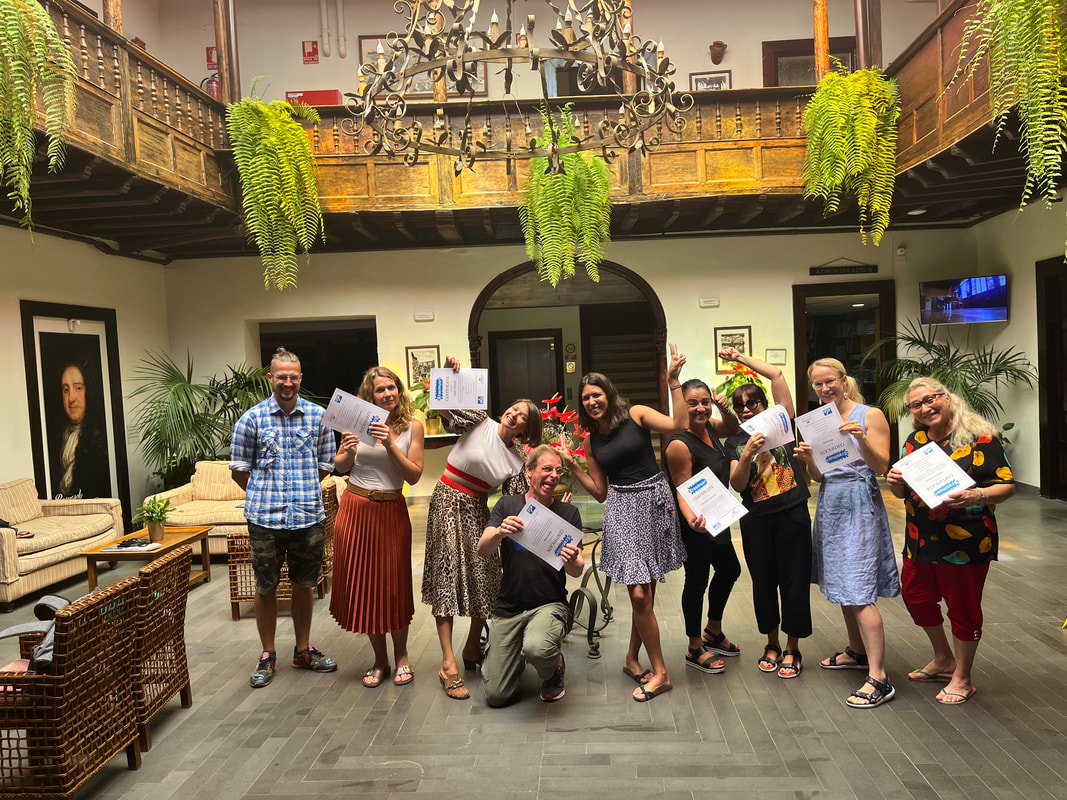
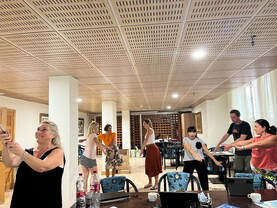
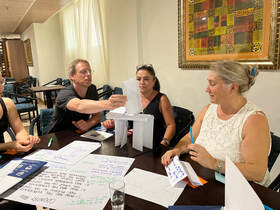
 RSS Feed
RSS Feed









